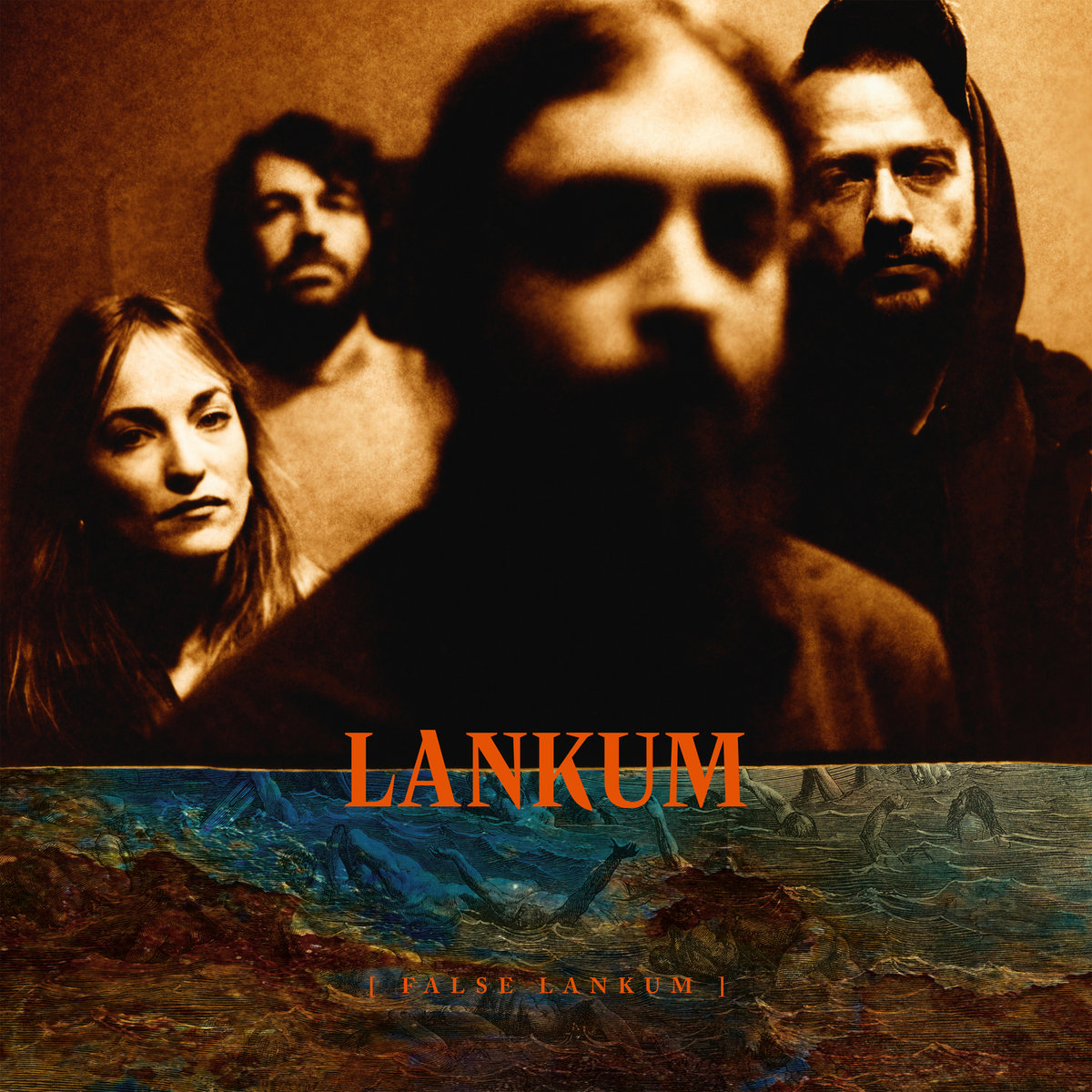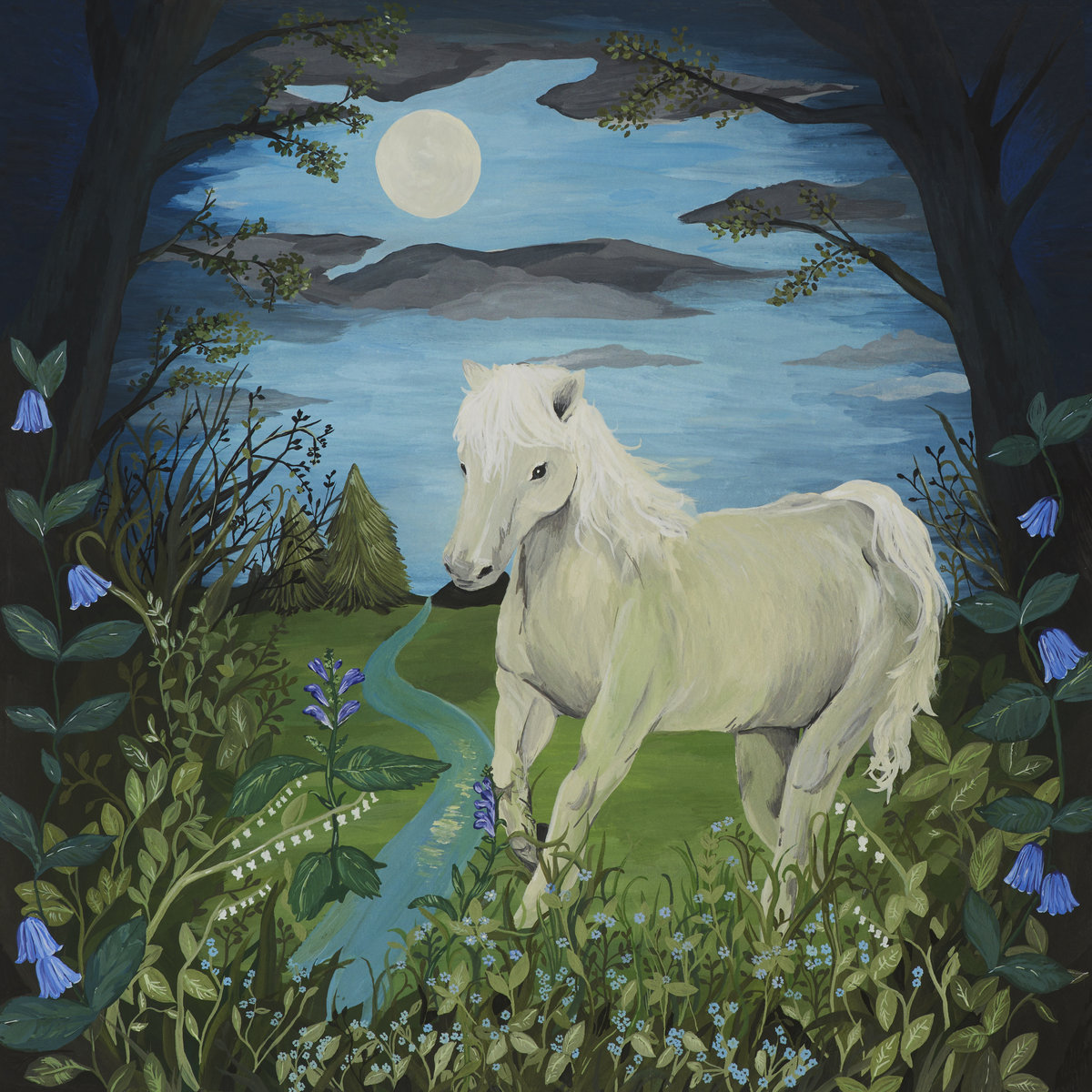We want to hear more – we need to hear more. The desire to consume as much music as possible in an ever-present weight on our shoulders. But it’s a burden we gladly accept, as one of the greatest feelings in the world is when we get to share some of our favorite records with like-minded people. If we’re being honest, there is simply too much going on in our lives to properly document all the music we love, and as a result, many of these lesser-known wonders slip through the cracks. Because, for each hyped release, there are countless others that are worthy of our attention, relegated to back burner status as we comb through major label offerings and assumed critical darlings.
And so, each year we roll out our Overlooked feature as way of addressing some of these sins, an atonement of sorts for all the albums we’ve not officially reviewed but with whom we’ve spent hours in conversation. This year has been especially filled with outside influence and world-shaking incidents, resulting in many releases, both mainstream and independent, not getting the proper attention or space they deserve in our columns.
This year, we’ve included over 50 albums that are just waiting for you to embrace their oddness, their beauty, and the ways in which they reduce the walls around our hearts to rubble. From bone-rattling metal colossi and hip-hop eccentrics to atmospheric ambient excursions and minimal folk storytellers, the list doesn’t hew closely to any one genre, opting instead to present 2023 as a year marked by boundless creative experimentation. We may not have reviewed them, but these are definitely some of the best albums of the year – and they’re waiting just for you. So sit back, scroll through, and stream away.
Listen to a Spotify playlist of our favorite tracks from our Overlooked 2023 albums here.

Amaarae – Fountain Baby
[Interscope]
Amaarae doesn’t see music in terms of restrictive labels or genres – the Ghanaian American artist discovers the connective tissue between various sounds and explores the ways in which each specific musical history exists to serve the desires of others. Fountain Baby is a perfect example of how she successfully integrates and expands upon this inquiring aesthetic, as her latest album is a beautiful shifting of rhythmic ideologies and finds her working her way through a kaleidoscopic landscape of shivering R&B, gossamer pop, and lush hip-hop. It’s as gorgeous as it is acidic, dealing in poisoned barbs and vicious takedowns while also offering a glimpse into the intense vulnerabilities that reside in the hearts of these songs.
As much she offers up deliriously catchy boasts and pointed fuck-yous, the music never becomes an afterthought to what she’s saying; it all aggregates into an emotional whirlwind that can overwhelm you if steps aren’t taken to sidestep its fury. The freedom felt here is unmatched; there is no corner that she doesn’t illuminate and no impulse she doesn’t indulge. She develops a complete mastery of these labyrinthine melodic threads, weaving a complicated and necessary perspective of boundless creativity and limitless innovation. Fountain Baby is a byzantine wonder, a collection of heartfelt ruminations on love, regret, sex, personal agency, and anger – it’s a searing indictment of toxic associations and a blistered ode to the necessity and devastation of emotional connections. – Joshua Pickard
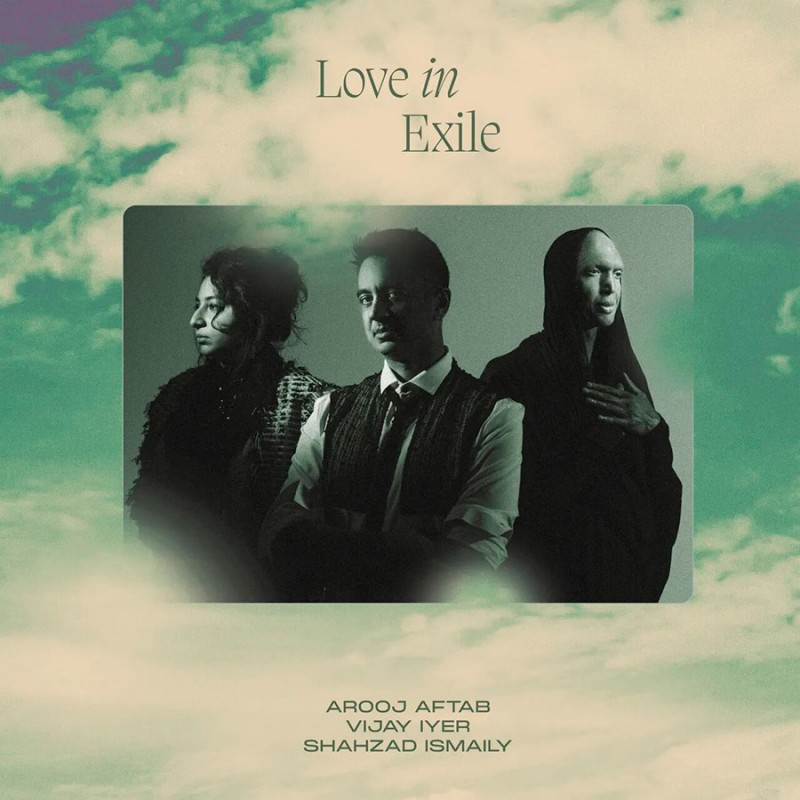
Arooj Aftab / Vijay Iyer / Shahzad Ismaily – Love in Exile
[Verve]
There is a great sea of beauty in Love in Exile, the new album from Arooj Aftab, Vijay Iyer, and Shahzad Ismaily, an ambient jazz rumbling that speaks of undiscovered crevasses just waiting to be illuminated. A procession of longform pieces that speak to the artists’ individual affections and desires, the record doesn’t seek to rein in any of their wilder impulses; instead, it embraces the open-ended spaces in which each musician operates. Aftab’s Urdu-language protestations blanket Iyer’s loosely woven piano and organ lines and Ismaily’s meticulous bass shivers. Retaining the ephemeral and spiritual nature of 2021’s Vulture Prince, this collaboration speaks of haunted memories bound through electroacoustic revelations, burrowing deep into our collective subconscious in an effort to pick apart the common threads of our experiences.
The music is as incorporeal as smoke but evinces a considerable emotional gravitas revealed through a collection of hypnotic melodies and uncategorizable rhythms. There are mysteries here, great unknowable moments that lead us around in circles and hint at something larger, something that we must discover and reconcile. The atmosphere is charged with a cryptic energy, deliberate in its direction but free to wander without regard for anyone within earshot. The piano, crisp and expertly winnowed, recalls the grand history of various classical composers while bits of Moog and plucked bass underpin the fluidity of a voice so unnervingly close that it feels almost voyeuristic to remain in its presence. The sounds are elusive, yet charged with a desire for companionship, and in the music’s conflicting natures, Aftab, Iyer, and Shahzad hint at a complexity defined by the great emotional wonders in our lives. – Joshua Pickard

Bailey Miller – love is a dying
[Whited Sepulchre]
Bailey Miller‘s sophomore album love is a dying is a collection of intimate recordings, swirling lo-fi stylings with progressive folk roots; it’s perfect for those who want more music akin to Tiny Vipers in the world. Recorded in sequence of completion, many of the tracks here are one-take recordings, capturing the spontaneous energy of the moment; on long tracks like “glacier”, “admirer”, and “mirror” there’s a tangible sense of melancholic electricity in the air. The album thrives off of this though: sometimes it feels like we are eavesdropping on Miller’s private moments. “hunger” with its swirling piano notes and “cul-de-sac” with its electric baritone guitar and ghostly reverberating vocals feel like intrusions of personal space. As each track builds from the last (occasionally referencing what came before), a story unfolds and the sorrow deepens. Over the sounds of birds chirping, the outside world seeps into and surrounds Miller’s lone voice on “goldfinch” as she asks “What happens when your dreams are dead? / Do they resurrect elsewhere instead?” The album may not offer an answer (the final track, with its stilling crescendo, veers towards pessimistic territory), but as time passes around her, Miller seems intent on searching for an answer, through love, anguish, regret, and the little joys that come with the everyday. – Ray Finlayson
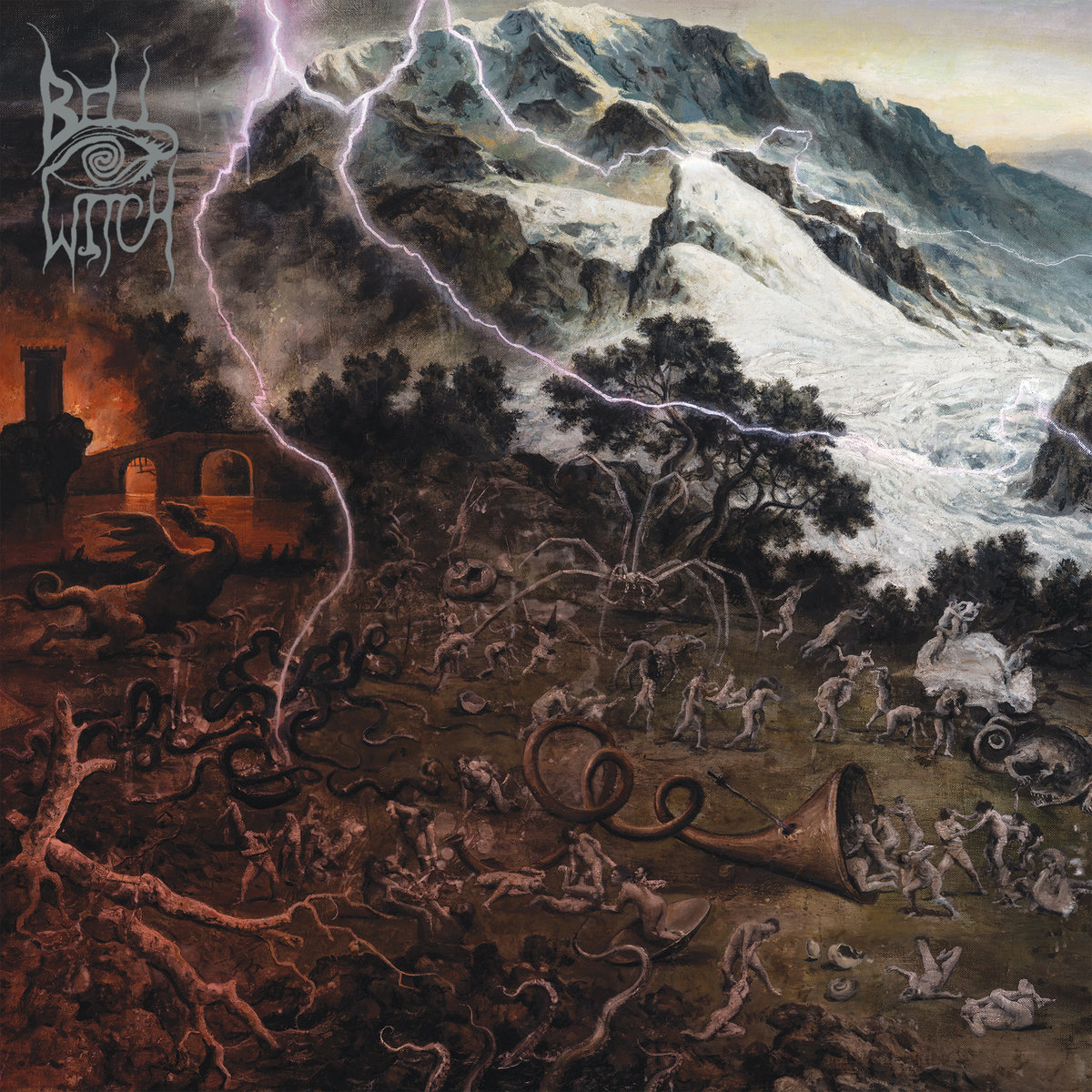
Bell Witch – Future’s Shadow Part 1: The Clandestine Gate
[Profound Lore]
Bell Witch specialize in an earthen sludge, the sound of ancient machinery coming to life and devouring anything in its path. They’ve always been ambitious in how this colossal thunder in constructed, but on Future’s Shadow Part 1: The Clandestine Gate, their desire for blackened theatricality is pushed to its extreme. Comprised of a single 80-minuite track, the album speaks to their love of both overt maximalism and metallic restraint, as the track effortlessly flows between barely-there instrumentation and funereal percussive annihilation. Almost prog-like in its ability to segment itself into mini-suites, the song is a wonder of control and release, a meticulously wrought collection of post-metal musings and droning repetition that reveal the depths left to explore in this scorched earth of thriving chaos and intense introspection.
There is precedent for this, as the band had previously released another 80-minute track in the form of 2017’s Mirror Reaper. But where that song/album dealt in unending anguish and despair concerning the death of band co-founder and drummer Adrian Guerra, their latest feels triumphant and determined in its drive to discover new avenues of musical revolution. Few bands are able to handle these kinds of tonal shifts and melodic reconfigurations, but Bell Witch thrive on upending convention – and Future’s Shadow Part 1: The Clandestine Gate stands as a monument to how volume and melodic variation can be intertwined without surrendering emotional relevancy. It’s enormous and occasionally overwhelming but never loses sight of its own purpose as a totemic ode to life and individual experience. – Joshua Pickard
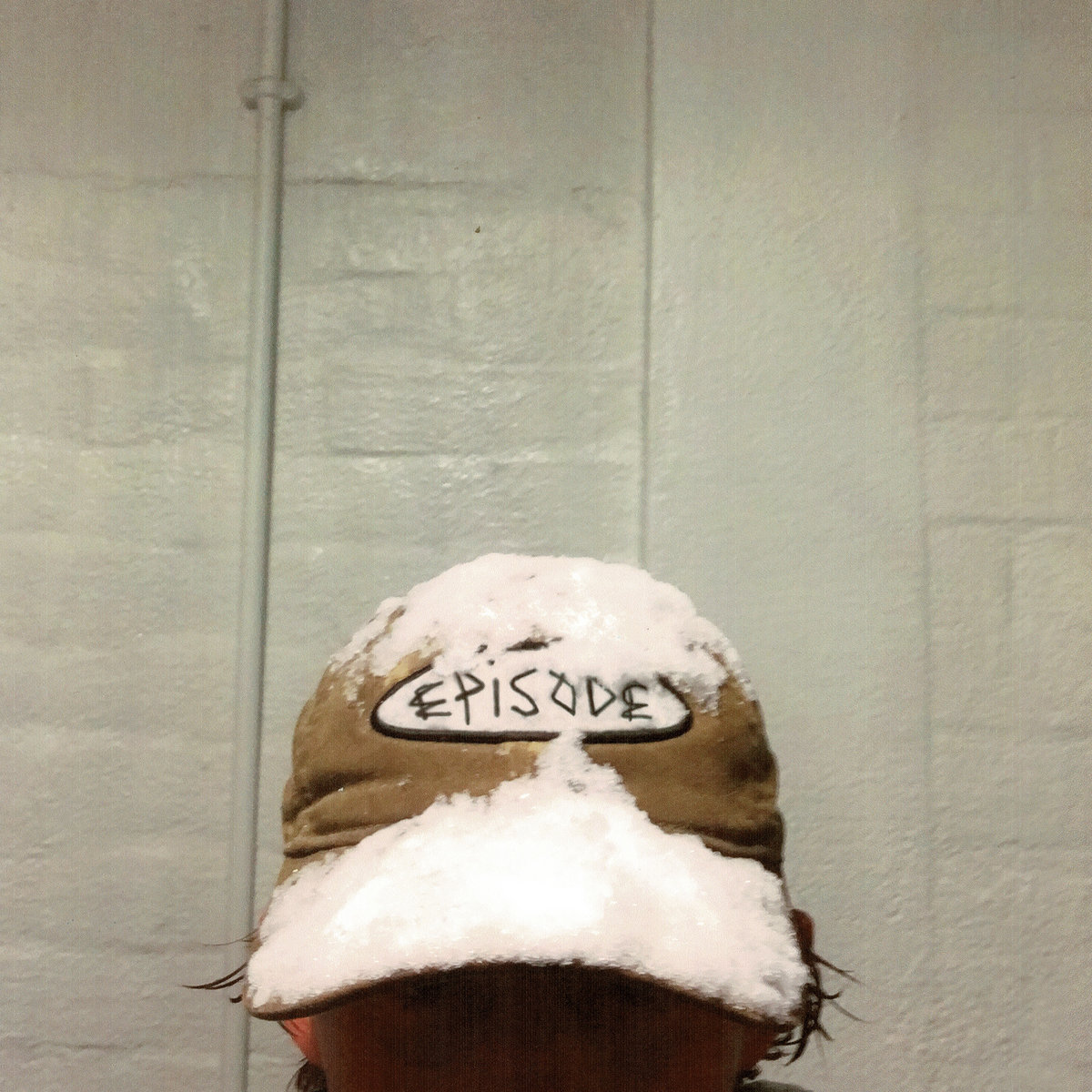
Ben Gregory – episode
[Transgressive]
episode is catharsis through and through. Ben Gregory‘s debut solo album tackles mental health head on with such an unflinching approach it makes it impossible not to wrangle with the details that preceded its creation. Written in the wake of his band Blaenavon dissolving and after receiving treatment in psychiatric hospitals, episode tangles with the instability this period of his life brought. “blue sea blue” is a 10 minute-plus epic that offers scoop after scoop of fascinating detail, from squelching electronic pomp, to landscape-evoking guitar passages, to the pivotal vocal hook of “sometimes I think I was born just to have a daughter.”
Working with a scope and scale new to him, Gregory reaches outwith his comfort zone here, and the end result is dizzying and fascinating. “deathbed hangover” is all glistening synths, featuring clattering percussion like a machine washing on the fritz, wiry guitar breaks, and auto-tuned and processed vocals; it’s a dazzling step outwards that evolves and transforms over its seven minute runtime. Elsewhere “((fall away ’til morn..))” evokes Bon Iver at the piano while “manifest*” and “god bless you” rally towards a hopeful future. Catharsis comes in many forms, as evidenced on episode, but each form it takes is undeniably invaluable to Gregory. – Ray Finlayson
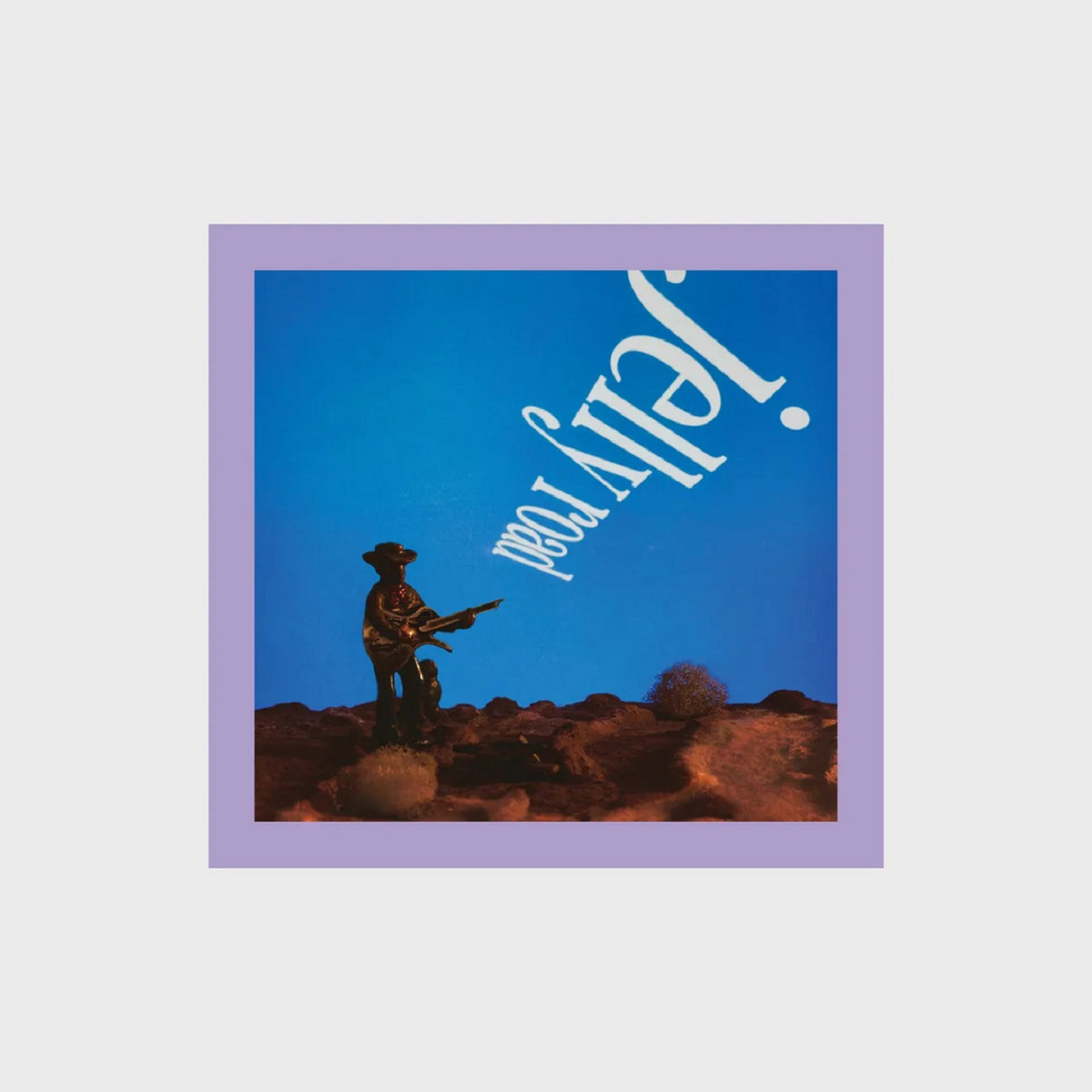
Blake Mills – Jelly Road
[New Deal / Verve]
Over the last decade, Blake Mills has become a very in-demand player and composer for the likes of Perfume Genius, Laura Marling, Jack Johnson, Feist, Stephen Malkmus… the list is practically endless. This displays his versatility and adaptive nature of his playing – but it’s in his own work that he really gets to express his unique stylings.
However, he isn’t entirely alone on his new record, Jelly Road; he’s joined by jazz musician Chris Weisman. The two had formed a bond while creating the songs for the TV adaptation of Daisy Jones and the Six that persisted – and blossomed – in the recording of this album. A far cry from the strict brief they’d been given for the soundtrack work, Jelly Road finds them going off in all sorts of directions, following their whims into dream-like aural strata.
Yes, if we’re being reductive we’d call it an indie/folk album, but there are so many textures, lyrics and production choices that elevate Jelly Road. Mills’ mellifluous voice and gentle playing naturally lull you into a haze, the soporific nature of the songs putting you into a space where you float through his strange, fairytale-like musings with vivid clarity. Whether it’s traversing an echoing plane on the sparse desert rock of “Breakthrough Moon”, considering the nature of music on the gorgeously earnest “Unsingable”, warmly watching omens unfolding in “Skeleton Is Walking” or taking a walk down the parable-like “Jelly Road”, there’s endless imagination seeping out of every part of this record. – Rob Hakimian

Bruiser and Bicycle – Holy Red Wagon
[Topshelf]
It seems that our reality is just the collective dreams of Albany, NY band Bruiser and Bicycle, a group of musicians who operate under the freak-folk mantle but whose work also incorporates extended prog-rock detours and waves of mutated art-pop bliss. You can hear echoes of bands like Akron/Family and Squid threaded throughout their latest album, Holy Red Wagon, but these familiar creative touchstones aren’t employed just to draw upon the established goodwill of their influences. This album is the band’s way of pulling them apart and molding them into something cohesive and dizzying and more than a little disorienting. There are no constants here, no genres to rely on, only a series of continually shifting perspectives bound only by the music’s resistance to rote classification and emboldened to reject staid assessments of emotional associations.
Basically, Bruiser and Bicycle know exactly what they’re doing, and we’re just along for the ride. Songs like “Lunette Fields Speak” and “Aerial Shipyards” develop and maintain a considerable momentum, even when stretched out past seven minutes. Odd percussive thumps and shivers rumble alongside a psychedelic pop iridescence – it’s like picking up a shell from the beach, placing it next to your ear, and hearing what sounds like Brian Wilson leading Animal Collective through a series of covers by The Incredible String Band. As you fall deeper into Holy Red Wagon’s embrace, the feeling of being lost in dreams within dreams becomes overwhelming. Eventually, the album becomes a surreal dialogue between the band and its audience, a discussion forever spiraling down through decades of experimental pop and folk music and the ever-expanding rhythmic ripples produced from these conversations. – Joshua Pickard
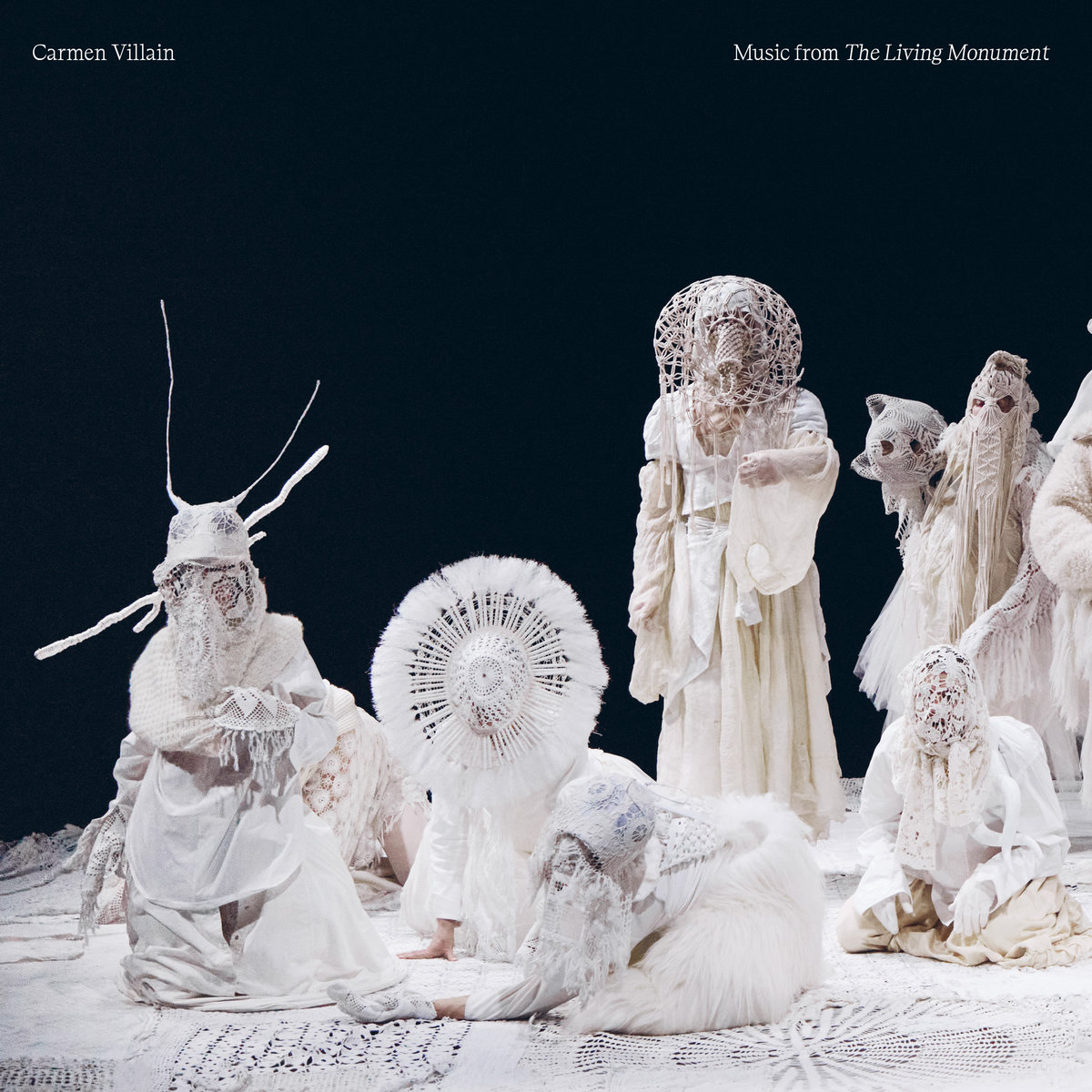
Carmen Villain – Music from the Living Monument
[Smalltown Supersound]
Carmen Villain doing soundtrack work seemed like an inevitable next step in her career. Her brand of enchanting ambience as displayed on Only Love From Now On came with an underlying sense of movement, letting tracks unfurl into new spaces instead of letting them linger on the spot. Music from the Living Monument is curious then: excerpts from a score for a 2.5 hour performance by Carte Blanche, the Norwegian National Company of Contemporary Dance, the five pieces here strip back Villain’s music to a few layers of hypnogogic wash designed to accompany slowed movement. “Gold” is like heavy air in a space where a thunderstorm is about to break. There is movement, but it’s much more subtle and peaceful, requiring more concentration than Villain’s previous works; this feels more like music to drift off to, even when focussed on.
Still, it’s lovely ambience. When she shifts the chords on “Multicolour” it feels like a door in your mind opening while “Violet” rings like the hum of a cathedral during an incantation. Nine-minute “Silver” introduces heavenly whispering voices after a percussive track akin to a canoe bumping against a pier with the lapping of waves. Many of these tracks were culled from longer pieces too, and when fully immersed there’s a pining the album leaves you with; the full tracks would have been fascinating and absorbing to take in, but like all good ambient music, Living Monument leaves you wanting to linger in its sound world longer. – Ray Finlayson
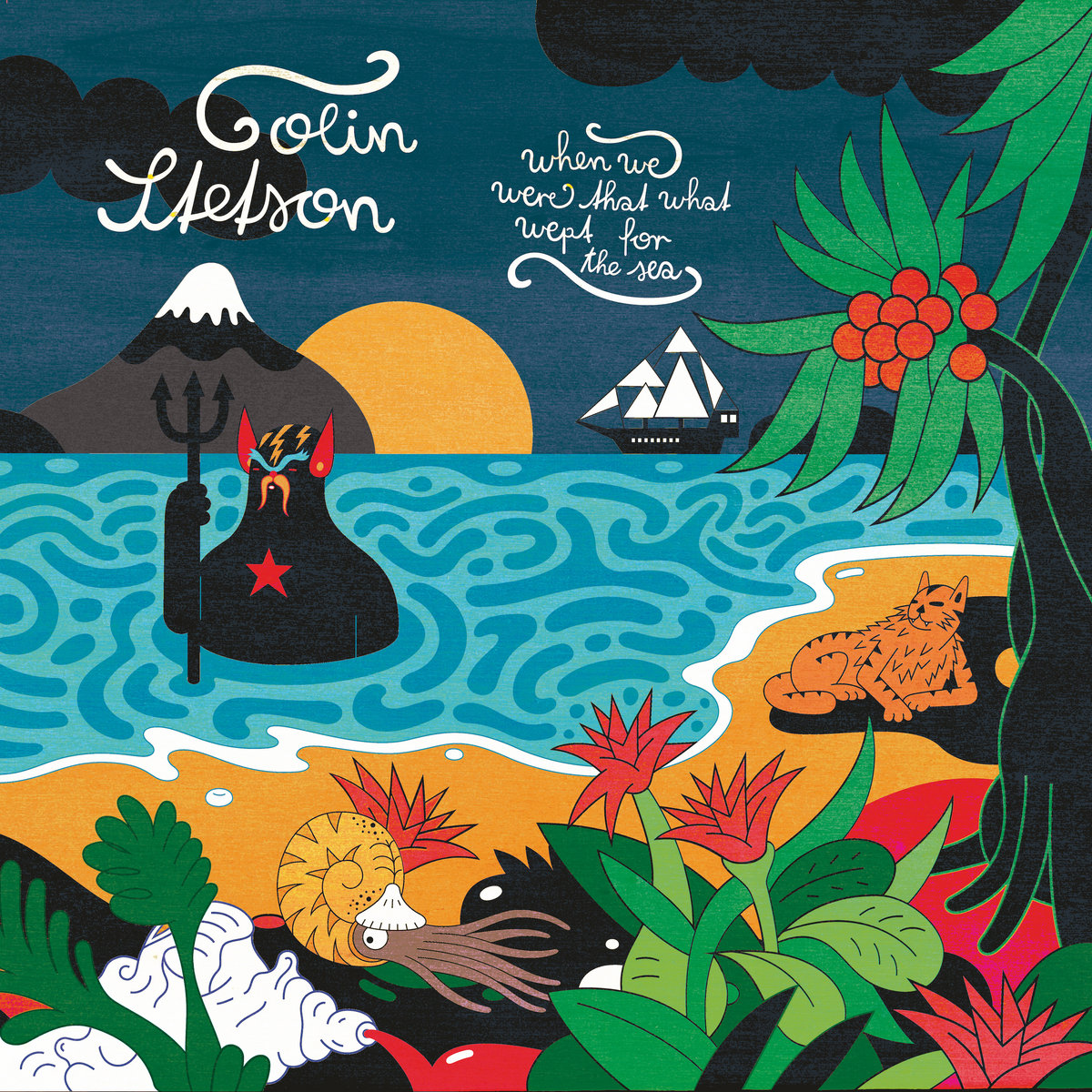
Colin Stetson – When We Were That What Wept for the Sea
[52Hz]
Colin Stetson has a beast slung around his shoulders, a hulking saxophone that threatens to engulf him every time he plays – him, and everyone within range of it sonorous tones. His technical precision and ability to seemingly turn the instrument inside out are wonders, but it’s the way he wrings riveting emotional catharses from its brass construction that leaves you breathless and disoriented and hungry for more. His latest album, When We Were That What Wept for the Sea, continues to play to his unique strengths, developing a quasi-spontaneous and utterly aching exploration of familial loss and the ways in which we process grief. The album acts a means of seeking answers in how to cope with the sudden death of his father, and through these urgent and tangled rhythms, he searches for a balm to the hurt in his heart.
Aided in his resolve by singer Iarla Ó Lionáird, guitarist Toby Summerfield, and with Brighde Chaimbeul on Scottish smallpipes and Matt Combs handling the string arrangements, Stetson mines personal revelation through sax lines so dense that they warp the reality around us, booming rumbles that tear at the fabric of our perceptions. “Long Before the Sky Would Open” possesses a timbre of gargantuan magnitude, a droning beauty that eclipses all other senses, at least temporarily. “Behind the Sky” is a noisy and aberrant slice of jazz noise, a thundering roar that fills the horizon with waves of staticky undulations, a collection of mechanical pulses that ebb and flow due to some unseen tidal force. The album is turbulent but not without hope, dissonant and yet welcoming its tectonic embrace – a vision of remembrance and pain and perseverance as only he could imagine. – Joshua Pickard
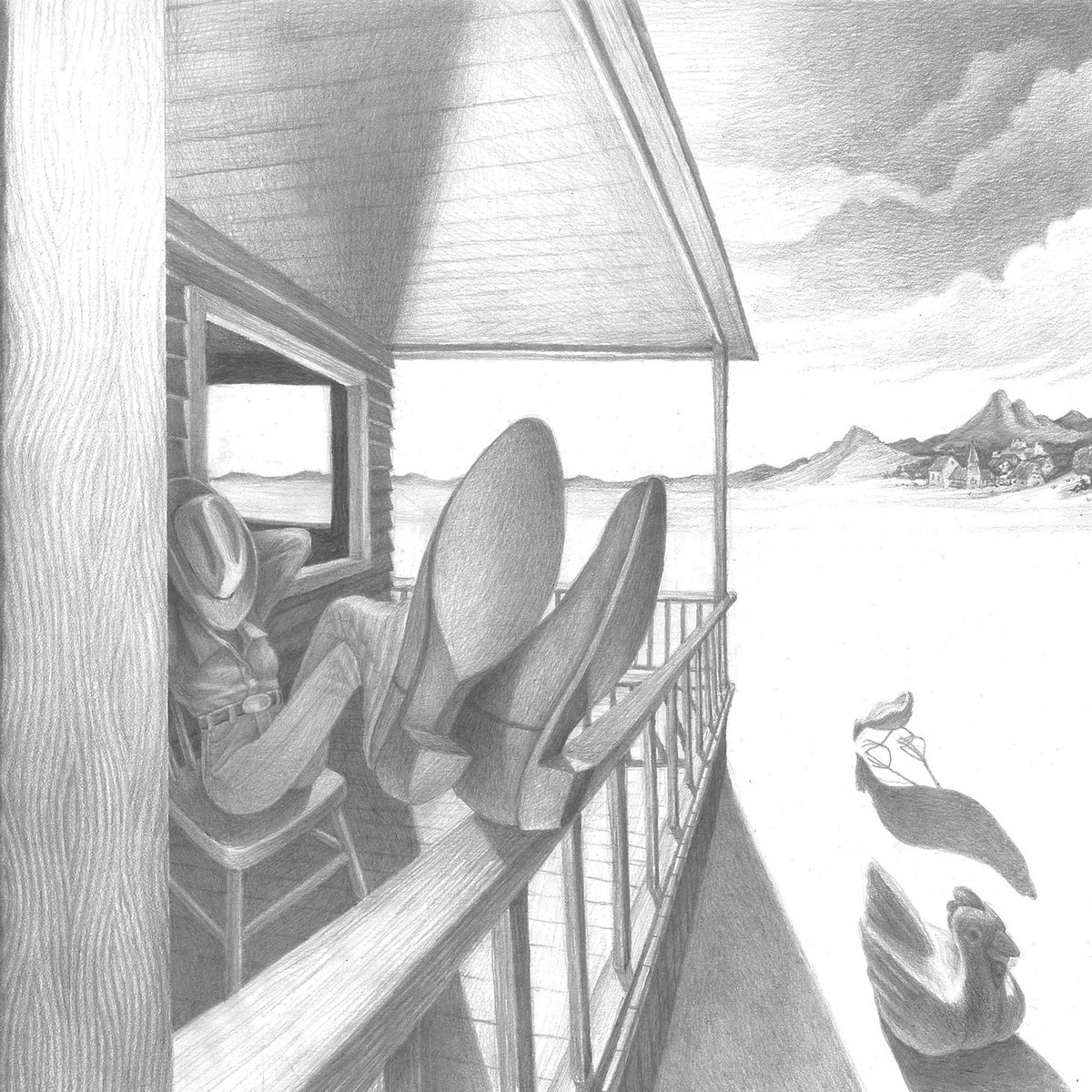
Daisies – Great Big Open Sky
[K / Perennial]
According to conventional wisdom, the music found on Great Big Open Sky is trip-hop, and while it undoubtedly bears the hallmarks of the genre, it’s a bit unfair to tie it entirely to that label. Daisies also operate in a realm of synths and dream pop, with touches of glacial ambient.
Singer Valerie Warren’s feather-light, wounded vocals anchor their skittering, even skiddish sound, worlds away from the Americana the album’s artwork might imply. “We Don’t Need Money” is an immediate highlight, a fragile mixture of romanticism and pessimism, making for an odd, relatable blend. The album is something of a paradox: warm yet distant, immediate yet patient. Above all, it’s an experience worth spending time with. – Chase McMullen
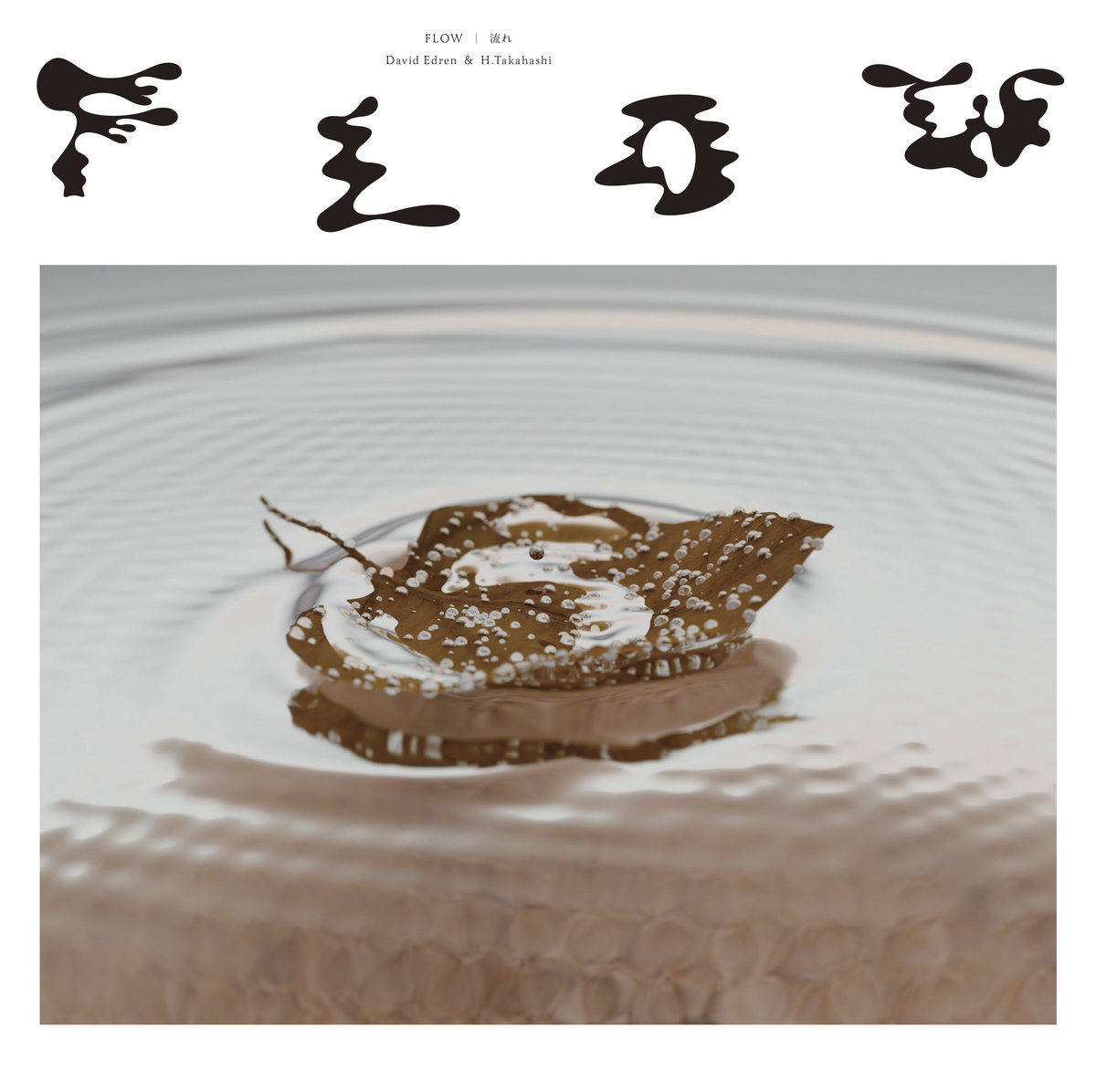
David Edren & H.Takahashi – Flow | 流れ
[Aguirre]
While he’s been crafting gently beautiful ambient music since 2015, H.Takahashi arguably reached new heights (and certainly earned a wider audience) with 2018’s Low Power. True to its title and striking artwork, the cerebral record moved him towards a new world: exploring the exhaustion (both mental, physical, and existential) of our modern world.
By linking up with Belgian artist David Edren, the restless Japanese architect is reaching in new directions once again. The music of Flow is serene and even stately, brimming with compassion and movement, matching its titular inspiration with natural grace. It’s far from purely background music, whirring with life and subtle ecstasy. Put more simply, it’s a contender for my favorite ambient release of 2023 thus far. – Chase McMullen
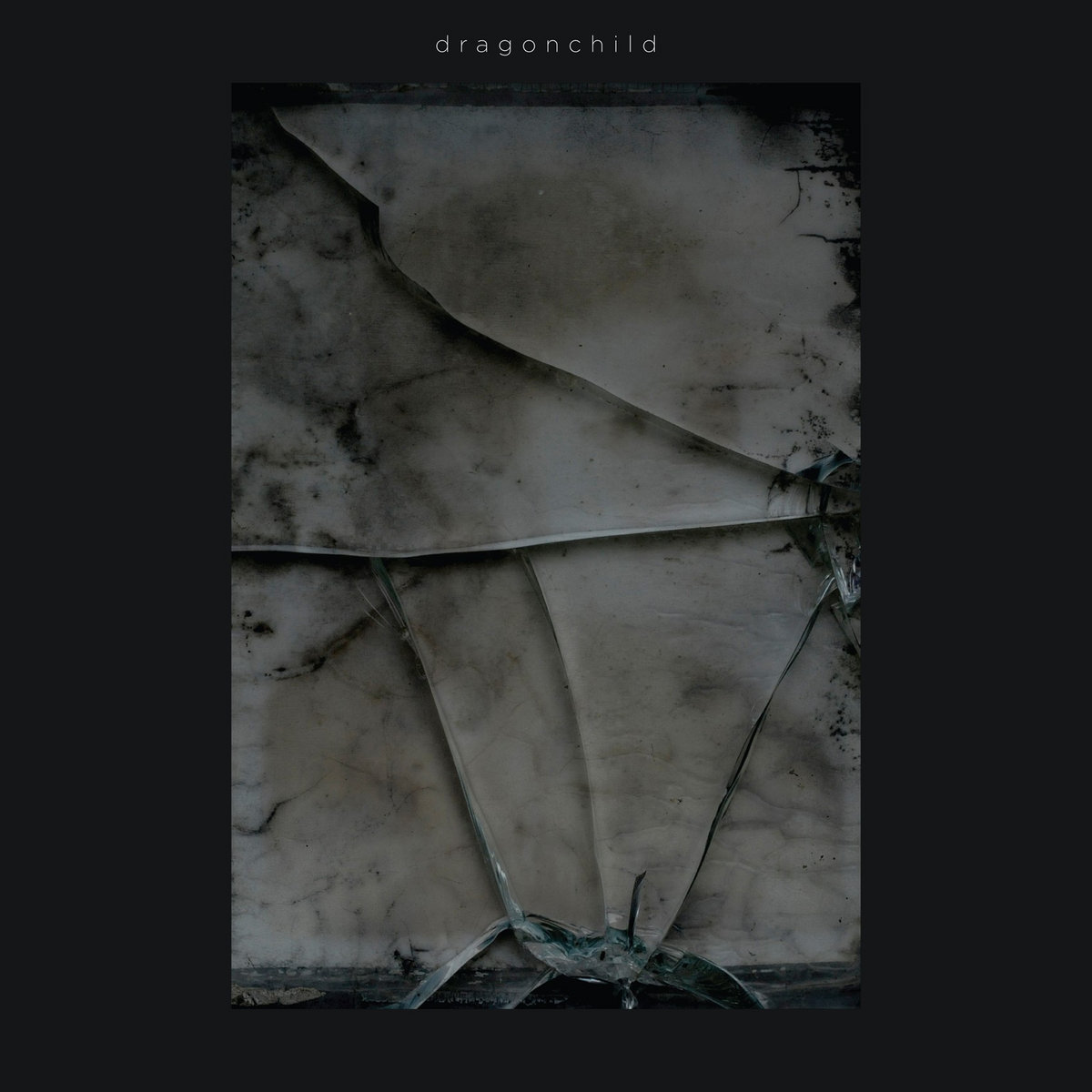
dragonchild – dragonchild
[FPE]
Continuing and building upon the work created as part of Debo Band, saxophonist, composer, and ethnomusicologist DA Mekonnen utilises an all-encompassing approach on their self-titled debut album as dragonchild. The album is a vivid and extended exploration of Ethiopian jazz, ambience, and open space; in some regards it’s more of an ethnography than an album, incorporating field recordings to create a sense of location. (The vinyl record of the album comes with an engraved topographic map of the Eastern Ethiopian lava fields on the reverse side to the music.)
At times vibrant and at other times soothing and calm, the album explores different contours without trouble. Over 20 minutes the final track “Meditation (Ancestor)” forms an absorbing drone from free jazz exploration while on “Above All” Mekonnen takes his sax playing to a mesmerizing astral plane. A plethora of guests also help: Sunken Cages (aka Ravish Momin) adds a jittery electronic energy to “The Source” while claire rousay adds textural warmth to the 14-minute mantric ambience of “Meditation (Reprise).” Vibrant and detailed, dragonchild is a series of landscapes to explore; the music invites you to either sit still with it, join the dance party, or wander in and out at your own pace. – Ray Finlayson
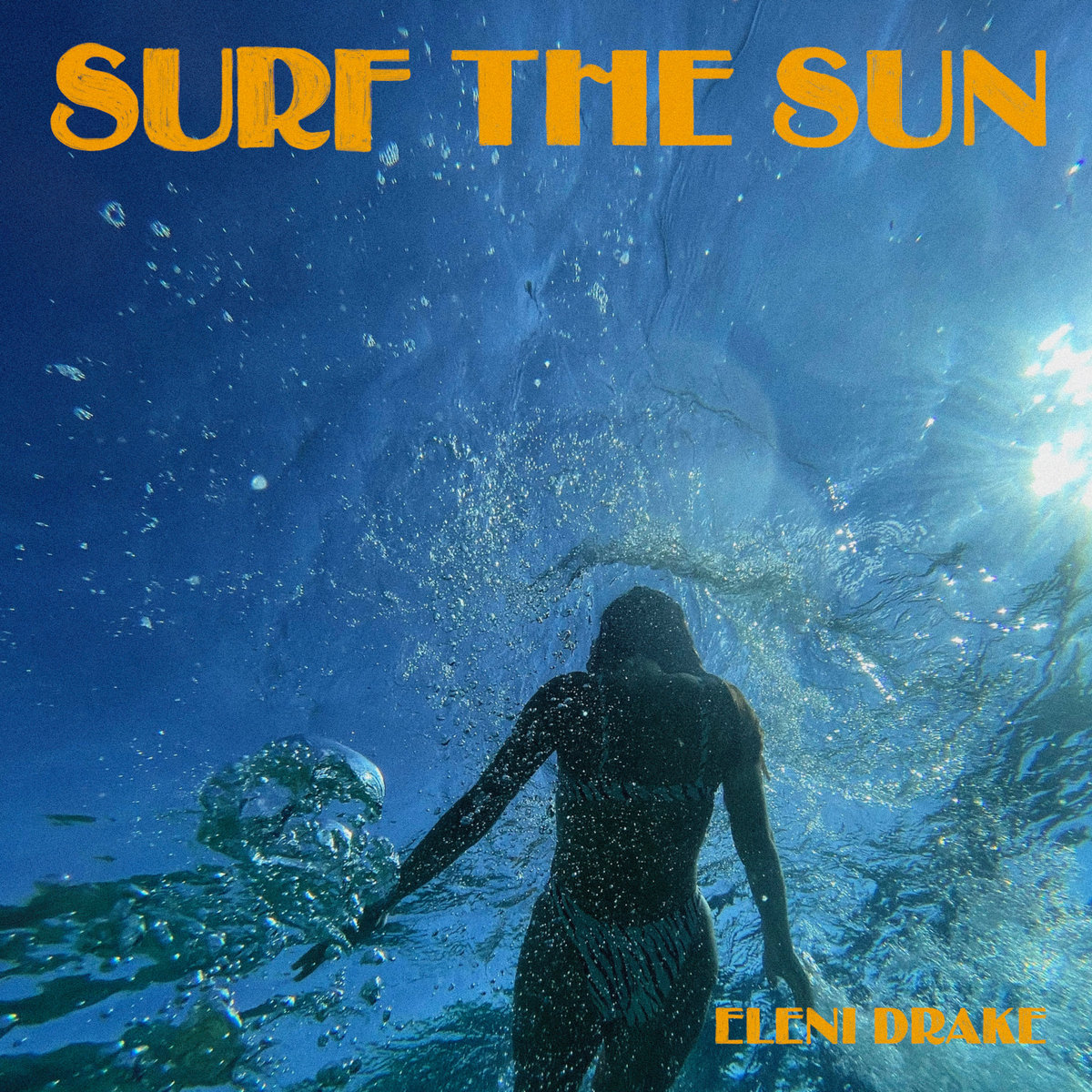
Eleni Drake – Surf the Sun
[Vanilla Sky]
Getting ahead of the curve, Eleni Drake was already lounging in post-summer sadness before the season began. Released in May, Drake’s Surf The Sun is immersed in sunny melancholy, all blissed out dispositions and wearied eyes sick of living life behind sunglasses. Evoking the likes of Faye Webster and Lana Del Ray, Drake may evoke a familiar style, but her knack for getting the vibe right is spot on.
“Rookie”, all high-noon sunshine guitar licks and layered voices, is blissed out magic while “Strawberry Moon” is the contrasting cooler nighttime dreaminess. There’s Billie Eilish influence smeared over “Buzz Cut” but it’s still a lovely moment of encouragement (“But what you didn’t notice, baby / is that you’ve been doing better lately”); it’s a theme that exists between even the more downcast moments on Surf The Sun. It might exude a languid sadness at times, but even before the invigorating climax on penultimate track “Shades of You” comes along, it has a reassuring mood to offer. An arm around a depressed friend, company during a bad time in your year, or just someone to remind you that life goes on after the summertime sadness: Surf The Sun is all those, a reliable ally to have by your side once the sun starts setting earlier in the evening. – Ray Finlayson
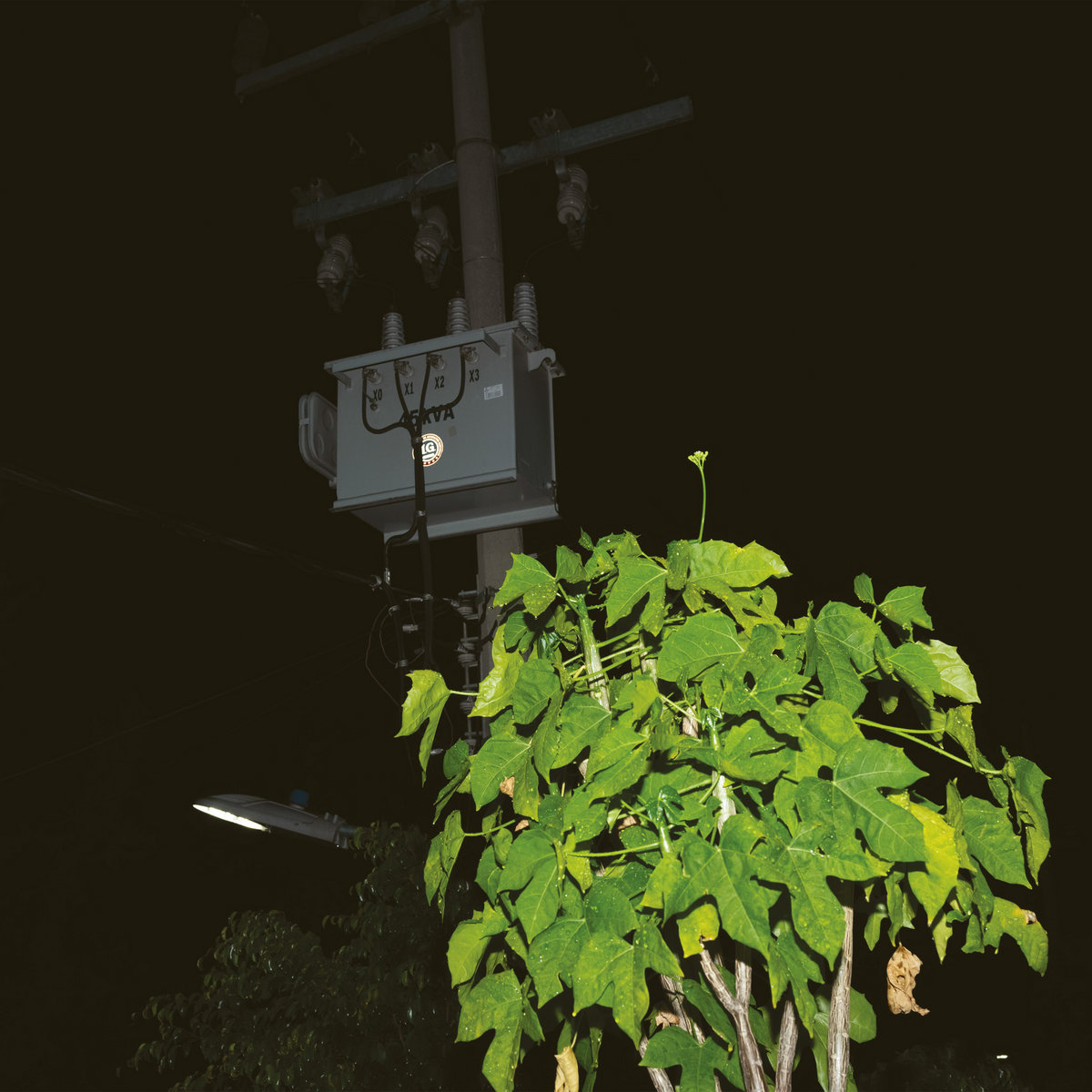
Giuseppe Ielasi – Down on Darkened Meetings
[Black Truffle]
Standing among a proud few musicians that continually strive to genuinely push just what can be done with a guitar since the late 90s, Giuseppe Ielasi has departed ever further into abstraction across his career.
For his first album on Black Truffle, he descends further along that journey, experimenting and fragmenting his electric guitar to the point that it often grows unrecognizable. It drifts between ambient and something more alien, possessing a deeply nostalgic, even mournful energy, eternally grasping for faded memory, haunted. Like just about anything in Black Truffle’s catalogue, it’s mysterious, moving, entirely singular, and deeply personal. – Chase McMullen
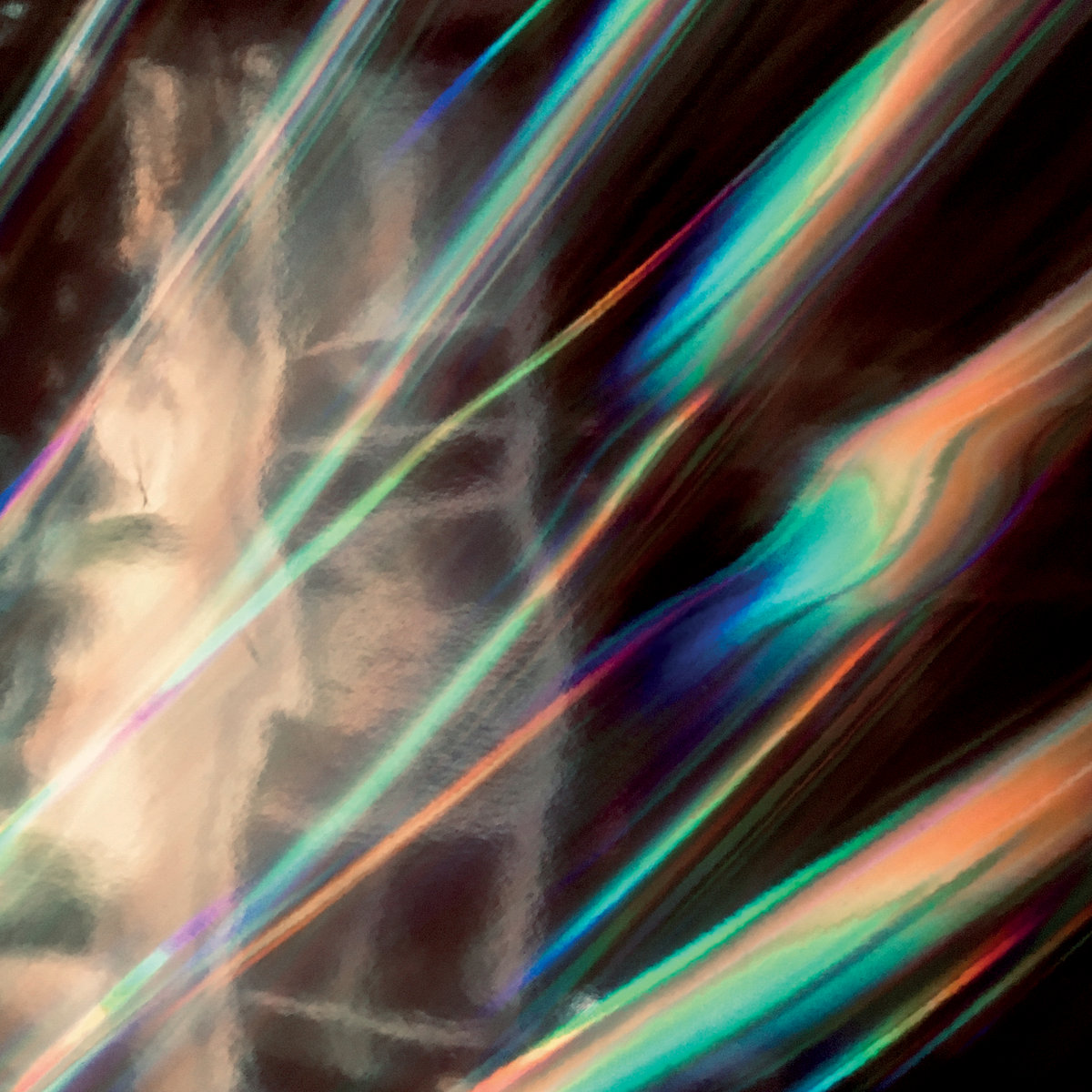
Golden Hours – Golden Hours
[Fuzz Club]
What would happen if Nick Cave decided to fully indulge the noisier post-punk impulses that have marked his work in the past and create an album of acidic guitar freak-outs and dense shoegaze theatrics? It might sound a hell of a lot like the debut release from Golden Hours, a self-titled Frankenstein cobbled together from a communal collection of darkly hypnotic rock ‘n’ roll histories and informed by a particular affection for cosmic psychedelia. Featuring past and present members/musical co-conspirators of Gang of Four, The Brian Jonestown Massacre, Tricky, The Fuzztones, and The Third Sound, the band draws upon a vast reservoir of experiences and aesthetics, with multi-instrumentalist Wim Janssens describing their sound as a “beautiful friction” and revealing that “every idea gets tried and will be further developed into a song or skipped in a heartbeat”.
From the piercing punk serration of opener “Come and Find Me” to the blurred shoegaze desolation of “Dead On”, the album never relents in its obsession with certain gravitational attractions and the odd things which collect in their orbits. The post-punk electricity of “Run Man Run” is allowed to race freely while the locomotive movements of “Not Enough” speak to the music’s need for change; meanwhile, “Keep on Dreamin’” recalls the bleary-eyed revelations of Darklands-era The Jesus and Mary Chain. This album is a gift to anyone obsessed with My Bloody Valentine or Echo & the Bunnymen, a weathered and worn testament to the power of these sounds and to these musicians who seek to upend our expectations of them. Occasionally measured and often chaotic, the album establishes the importance of looking back to gain a greater appreciation of where we are now. – Joshua Pickard

ICECOLDBISHOP – GENERATIONAL CURSE
[Epic]
While ICECOLDBISHOP has had heads chattering for a moment – particularly thanks to a scene stealing appearance on Boldy James & The Alchemist’s Super Tecmo Bo – somehow, some way, his debut album has flown somewhat under the radar. Relative critical acclaim be damned, this deserves to be the hip hop album you’re talking about with your friends in the backyard this summer.
While its influences are clear (that’d be Kendrick Lamar, folks) GENERATIONAL CURSE nonetheless very much manages to create a world of its own. It’s a grim, brutal one, but one that demands to warily walked around in. Bristling with icy production and an icier worldview, it’s a harrowing experience, sure to alarm casual listeners, but in a moment in which hip hop is largely reliant on safe pop bets (see Drake’s career post-Reading This) or empty, over-stuffed epics (see Utopia), there’s more than a lot to be said for an album so willing to push buttons and leave it all on the blood-stained floor. Let me be more clear: this may well be the most fully realized, confident, and laser-focused debut hip hop album since the guy I said influenced it. If that doesn’t say enough for ICECOLDBISHOP, I don’t know what will. – Chase McMullen
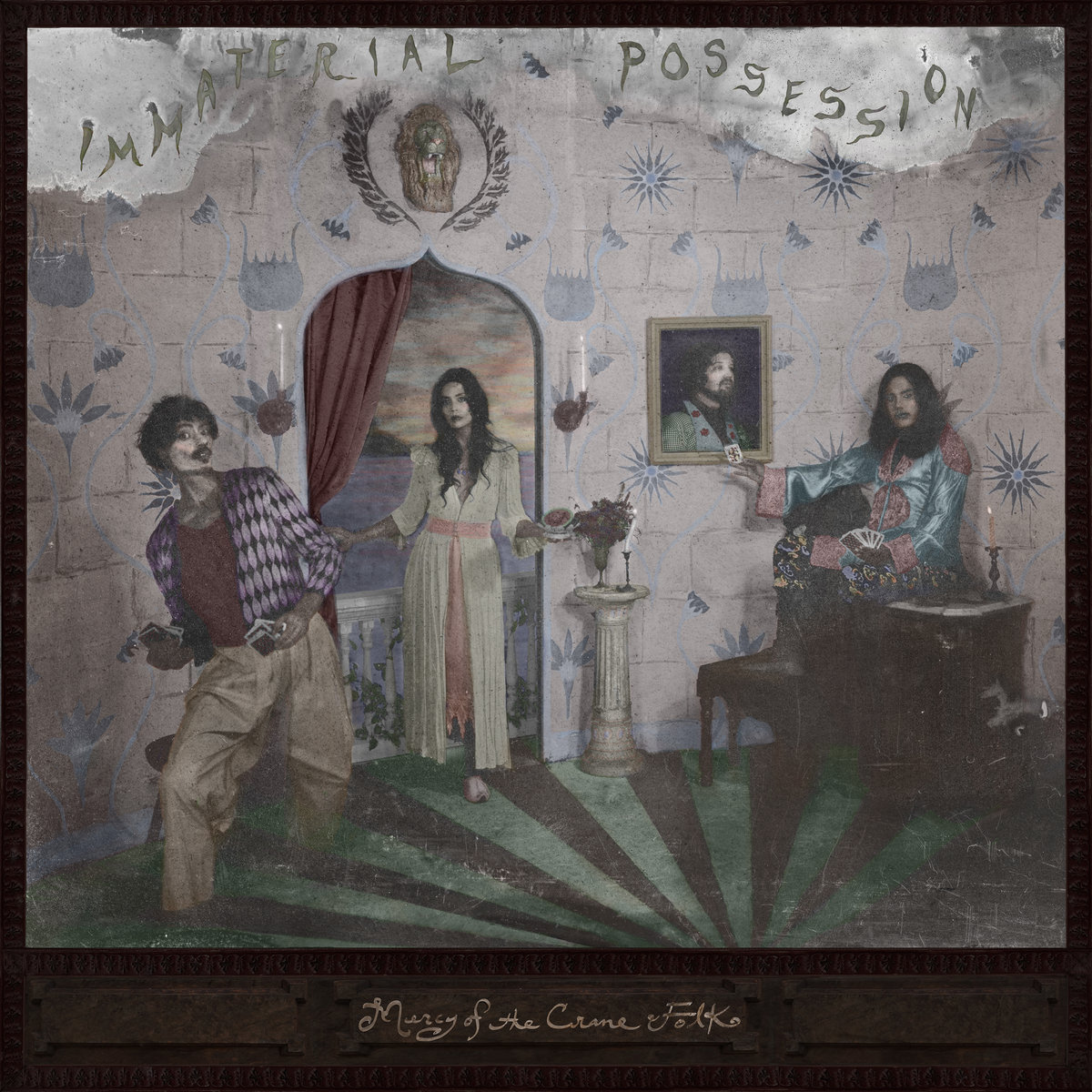
Immaterial Possession – Mercy of the Crane Folk
[Fire]
Athens, Georgia’s answer to the UK’s Trembling Bells, Immaterial Possession are perfect if your vibe is theatrical avant folk music with a hint of medieval flourish. The band’s second album, Mercy Of The Crane Folk utilizes a tapestry of instrumentation. Harpsichord and flutes bring a gothic dreaminess to “Medieval Jig”, creaky woodwinds haunt opening track “Chain Breaker”, and guest drummer Jon Vogt brings vibrant percussive layers to “Birth of Queen Croaker” that add a fantastical edge. The eerie abyss of “Siren’s Tunnel” – where Madeline Polites is the titular enchantress luring you deeper into the darkness – is a showcase of the instrumental skill of the band, weaving together strands of Middle Eastern influence with traditional folk, classical and psychedelia. Mercy Of The Crane Folk won’t be for everyone, but for those who it is, they will likely connect with it immediately and enjoy exploring all its dingy corners, cavernous rooms, and occasionally ostentatious decoration. – Ray Finlayson
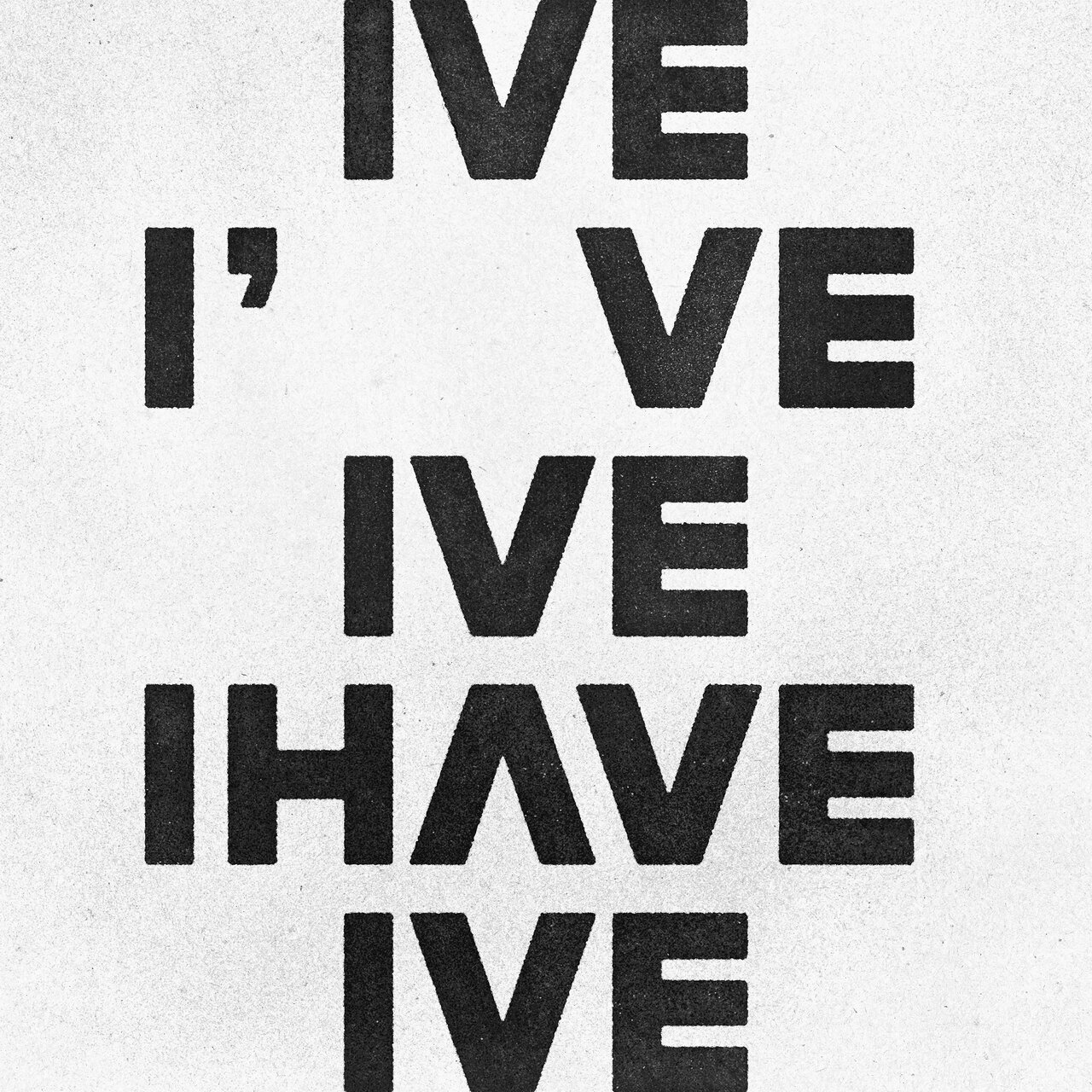
IVE – I’ve IVE
[Starship / Kakao / Columbia]
As a bit of a lapsed K-pop fan – I appreciate NewJeans as much as the next guy, but primarily I’ve ended up checking in with veteran favorites – it took other recent girl groups to bring me back to the fold. IVE is certainly one of them (we’ll talk about the other later on in this list).
Generally speaking, they trade in a decidedly mature brand of K-pop, something that may well appeal to even the genre’s detractors. Opener “Blue Blood” bristles with an almost forceful chorus, drawing you in with clattering drums and vocals that entirely encircle you. As the best K-pop tends to do, it blends genres with brazen, charming disregard (peep the truly odd, addictive blend of G-Funk keys and glitchy pop that is “Hypnosis”). Naturally, they find time for the staple K-pop banger, with the beat and hook of “Kitsch” sure to stay in your head for days. As essential as the genre has been this year. – Chase McMullen
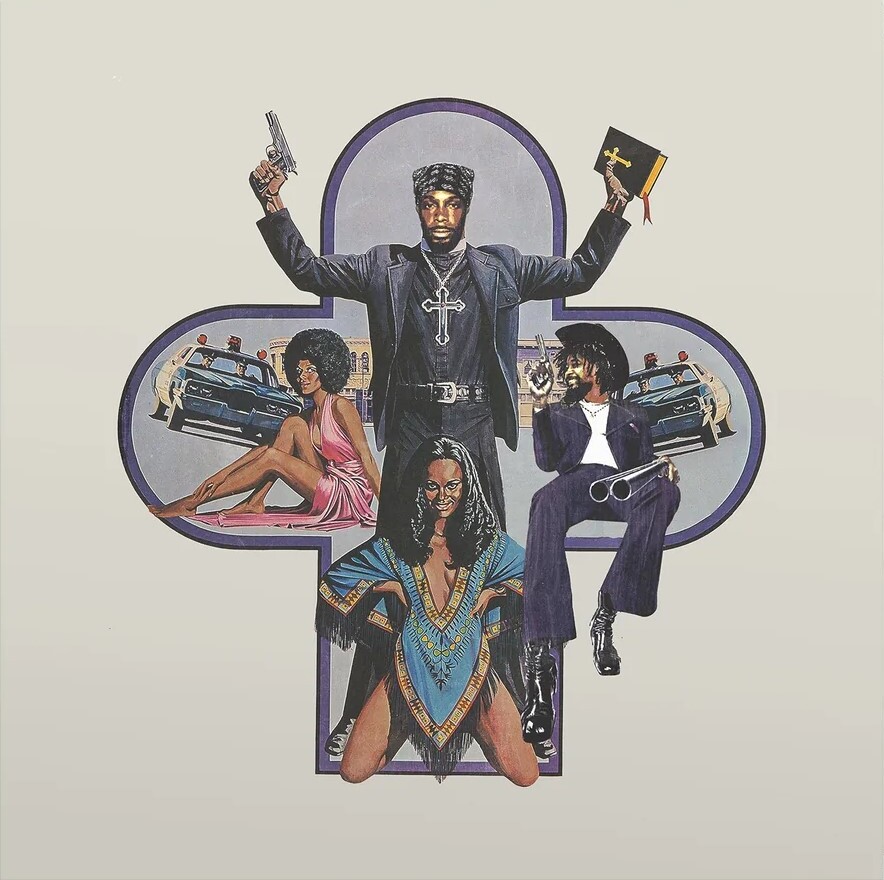
JPEGMAFIA & Danny Brown – Scaring the Hoes
[AWAL]
Who knew that Peggy and Danny Brown would stand up to save hip-hop in 2023? I’m speaking somewhat hyperbolically – there’s been plenty of amazing rap records this year – but I was completely unprepared for how absolutely necessary Scaring the Hoes feels, or how cohesive it feels. You don’t just listen to it; you fall recklessly into its bonkers, bizarro realities. In hindsight, few pairings make more sense that the diabolically creative Danny Brown and the mastermind behind JPEGMAFIA’s aberrant hip-hop atmospheres. Peggy’s beats are sliced into ribbons, densely aggregated, and left to decompose in the humid summer heat while Brown cackles and struts in a voice that defies explanation, a truly distinctive howl that finds companionship in the music’s off-kilter vibes. The album is lean, free of filler, and forces you to reconsider what the genre is capable of producing.
Shifting between fairly minimalist beats that clatter and collapse and those that appear as dense as an imploding star, the album doesn’t lean in favor of either artist, preferring to revel in the equilibrium of their entangled inspirations. “Steppa Pig” is a militant barrage of corroded rhythms and corrugated beats, while “HOE (Heaven on Earth)” is a collage of carnivalesque hip-hop anomalies and gospel machinations. Where other artists might focus in one or two interesting sounds and build some demo-adjacent draft, Peggy and Danny go full maelstrom and create an album that luxuriates in its oddness, in the rapid changes from one moment to the next. There is no rest, only transition. Scaring the Hoes is a refuge for the kind of mesmeric and unconventional hip-hop rarely heard these days and further underscores the necessity of collaborative projects like this one. – Joshua Pickard
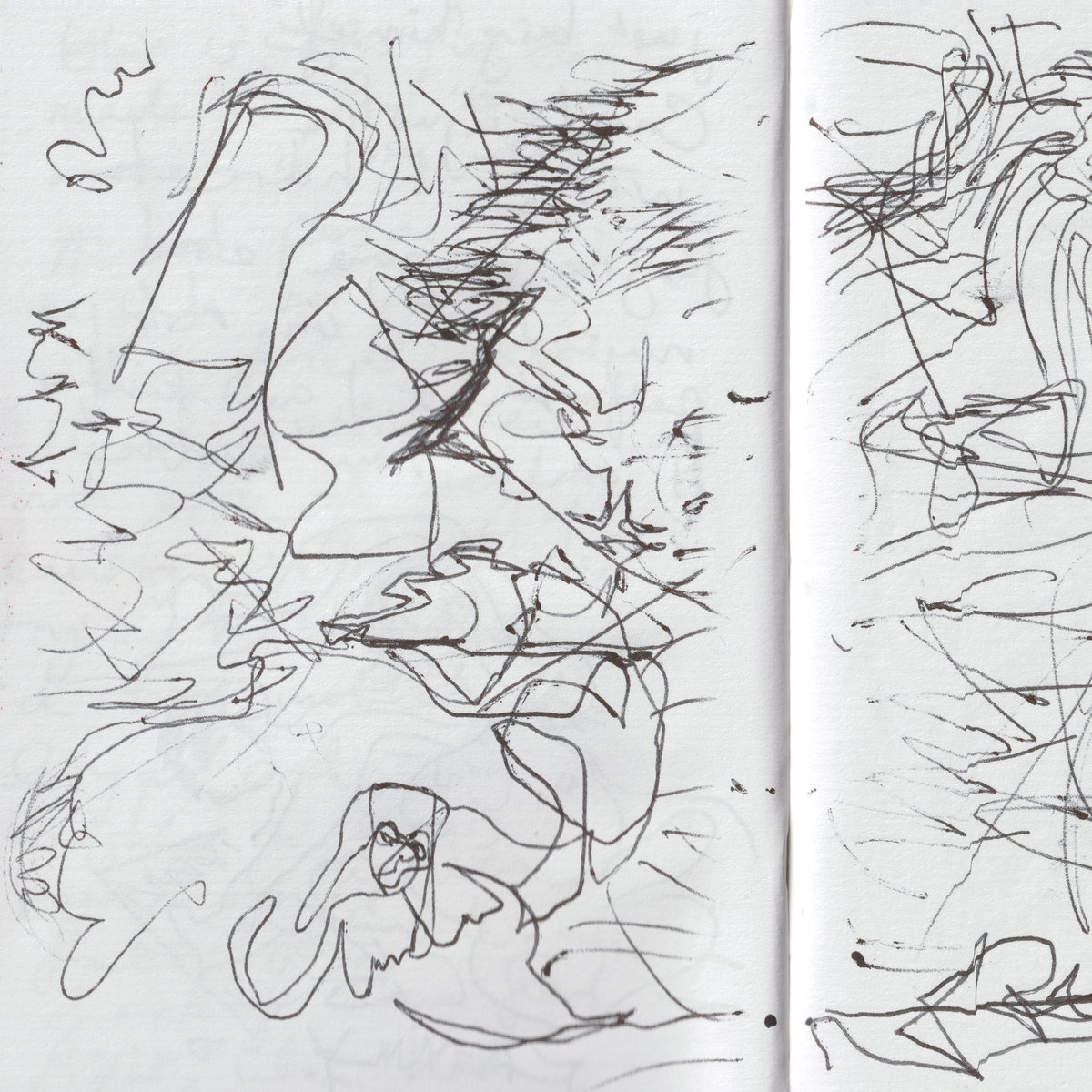
Joanne Robertson – Blue Car
[AD 93]
UK singer-songwriter Joanne Robertson uses folk music as way of recalibrating her internal compass and finding ways to express all the inexpressible things that take up residence in her heart and head at any given time. Her voice is conversational, possessing a steely resolve when necessary, and quietly devastating when left to its own devices. And it serves her well across her new album, Blue Car, whose songs have travelled with her for quite some time, sprawling out over a decade of experiences and memories and feelings forgotten and renewed. Drawn from archives of unreleased material, these tracks act as snapshots of precise moments in her life, unadorned acoustic histories flickering in the darkness and waiting for someone to come by and wait with them until the morning sun rises to sweep the shadows away.
For Robertson, the distance covered on the way to revelation is what contains the most important details. It’s not about where the music ends – it’s how it shapes the landscape and anyone within earshot that genuinely reflects on its true emotional relevance. The title track finds her filtered through a dense lo-fi atmosphere, starting her journey far removed from anyone else, a lone voice calling out to those operating on her wavelength. It perfectly sets the tenor of the rest of the record, presenting a hesitancy that slowly melts away as we travel these roads with her. “If It Feels” takes on the appearance of something Harry Smith might have recorded in his exploration of Appalachia while “River Shock” is a gorgeous blur of plucked strings and ethereal vocals. She never overcomplicates things, giving each song room to exhale and mull over its own aspirations, never losing sight of how important a single moment can be. – Joshua Pickard
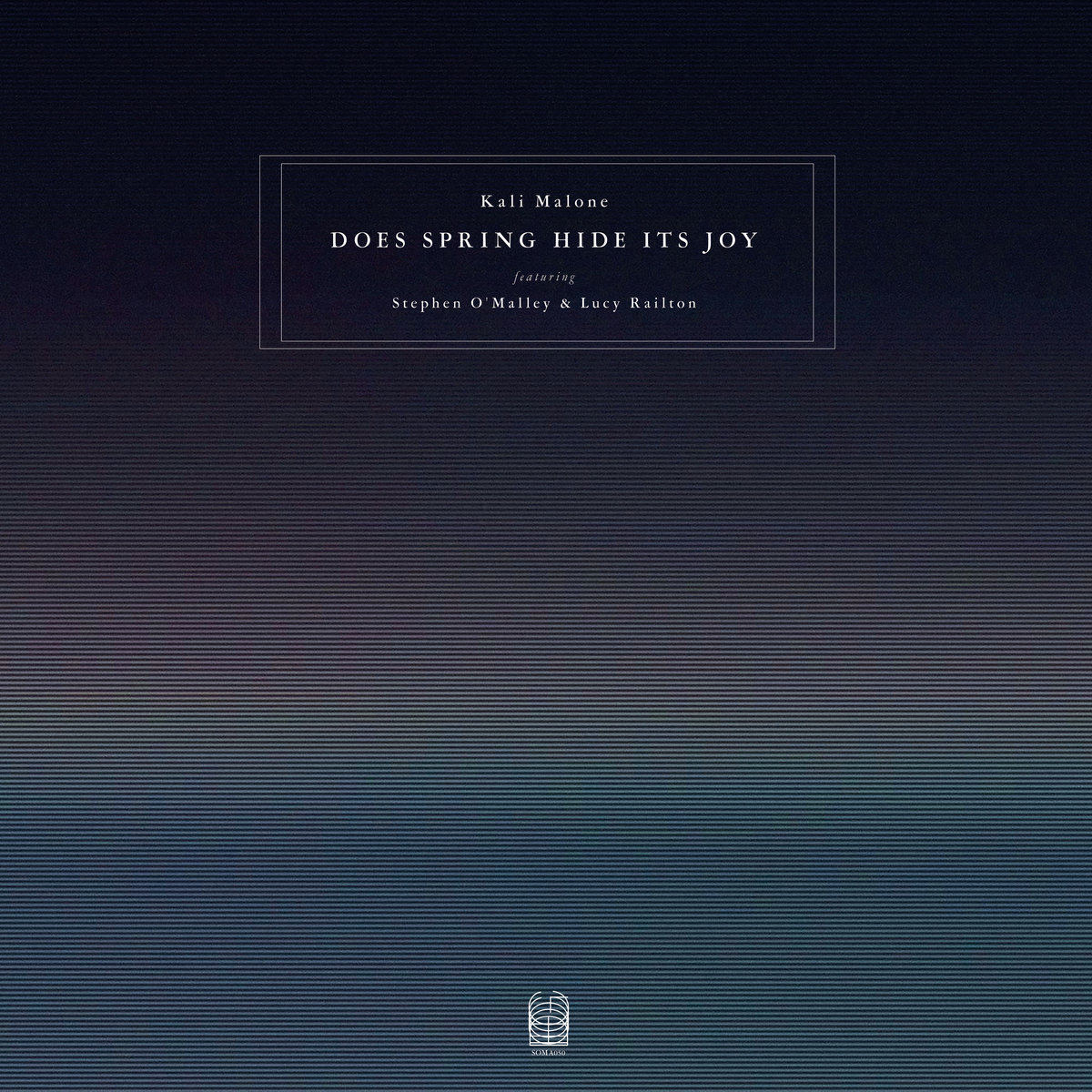
Kali Malone – Does Spring Hide Its Joy
[Ideologic Organ]
With early work, Kali Malone explored the potentials of the pipe organ (notably on 2019’s The Sacrificial Code), then shifted gears, melding her own synth work with trombone and bass clarinet parts courtesy of Mats Äleklint and Isak Hedtjärn (2022’s Living Torch). In January 2023, she released the five-hour, nine-track Does Spring Hide Its Joy. Making innovative use of sine-wave oscillators, Malone was accompanied by Sunn O))) guitarist Stephen O’Malley and cellist Lucy Railto. The result is an evocative set of interplays, the trio forging a seminal work of atmospheric minimalism.
The lead track, “v1.1”, opens quietly but with striking clarity, a lone note that soon proliferates, singularity yielding to multiplicity in a way that would ring true for both Darwin and the Buddha. Volume and tones shift, harmonics are added and removed, textures smoothen and roughen. The trio demonstrate an ability to remain cogently expressive while adhering to a breathtaking sense of restraint.
On the hour-long track “v1”, the trio are subtly interactive yet precisely balanced. Syntheses and symbioses are highlighted, as the trio metaphorize the interdependent and evolutionary nature of life. Also, despite the fact that many of these sounds are sustained for long periods of time, they do (eventually) morph or fade, pointing to impermanence.
Despite its intimidating length, Does Spring’s drone-y resonances, crystalline transitions, and energetic movements are riveting. A listener imagines epochal processes: the Big Bang, the origins of time and space, the birth and death of stars, the rising and passing of species. Synesthetic listeners may experience prism-like waves of light ranging from earthy shades to bright yellow. This is music to climb into, surrender to. It offers a gateway to higher and transcendent truths. – John Amen

Kali Uchis – Red Moon in Venus
[EMI / Geffen]
Kali Uchis has long sought a way to bridge pop with R&B without sacrificing the unique vibrations of either genre, and with Red Moon in Venus, she’s delivered an album that speaks to the strengths of both while sidestepping the usual platitudes that often accompany these sounds. Focused on self-identity, love, emotional autonomy, and an awareness of life’s greater aches, this record radiates an ephemeral glow, reveling in the euphoria of joy and physical pleasures while calling out those things which would try to rob of us of our happiness. Red Moon in Venus is a celebration of the moments that empower us in different ways, whether it’s the jolt we get from intimate companionship or the realization that we’re gradually working toward a form of self-fulfillment.
These songs flutter and bound from one thought to the next, dragging us through a vivid world of 80s synths, lush R&B grooves, and a bilingual lyrical directness filtered through torrents of hip-hop braggadocio. Her voice is equal parts liquid silver and smoke, mercurial and surrounded by a vast gravitational pull, always in a state of fluctuating movement. Aided by Summer Walker, Omar Apollo, and Don Tolliver in supporting roles, Uchis finds a way to connect the effervescent nature of pop music with the sultry musings of classic R&B – it’s a complex equilibrium she manages, coasting through breezy melodies that extend for miles while also focusing in on cavernous rhythms that reveal her unique aptitude for merging different aesthetics and musical genealogies. – Joshua Pickard
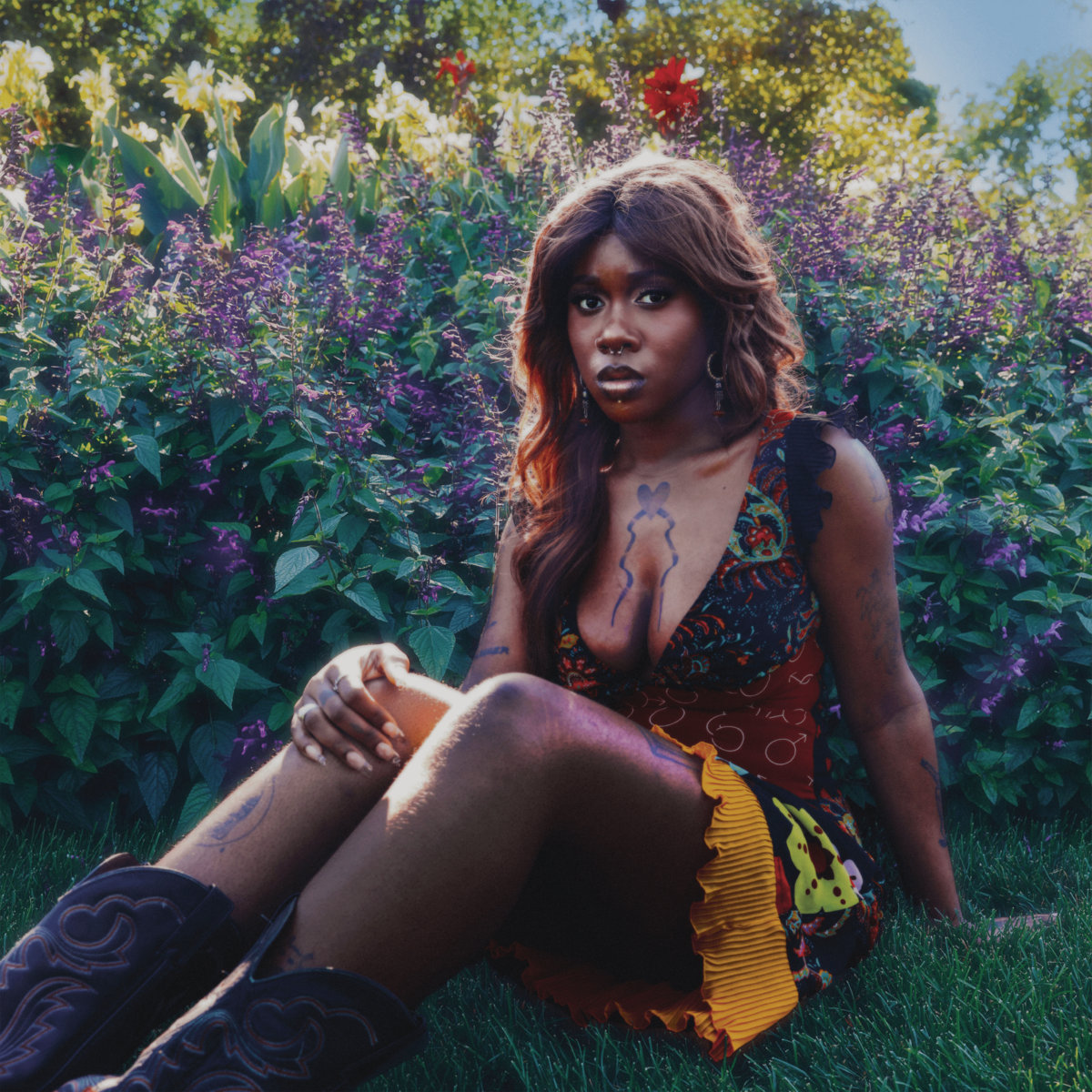
Kara Jackson – Why Does The Earth Give Us People To Love?
[September Recordings]
Chicago artist and poet Kara Jackson might have only just released her debut album, but she’s experienced plenty of life in her time – and it’s all on display in her own characterful way across Why Does The Earth Give Us People To Love? That title clues us into the emotional vulnerability at play in these acoustic-led missives, but it doesn’t do justice to the pure attitude that Jackson brings to her tales. Whether simply lamenting “damn the dickhead blues” or complaining “Every man thinks I’m his fucking mother / Good for milk and good for supper” there is a righteous feeling of humorous annoyance that is transmitted.
But for the most part, these tracks find Jackson mining the depths of her trials to figure herself out. Aided by sparing arrangements, the odd bit of brass and – most of all – her rich vocal instrument, she can dig down into the earth of a feeling as naturally as she can fly away with it and escape the weight. Whether she’s lamenting her poor dating choices or stepping outside of her experience to observe the behaviour of down-and-out characters, she brings a simple complexity and enormous compassion that is always engrossing. – Rob Hakimian
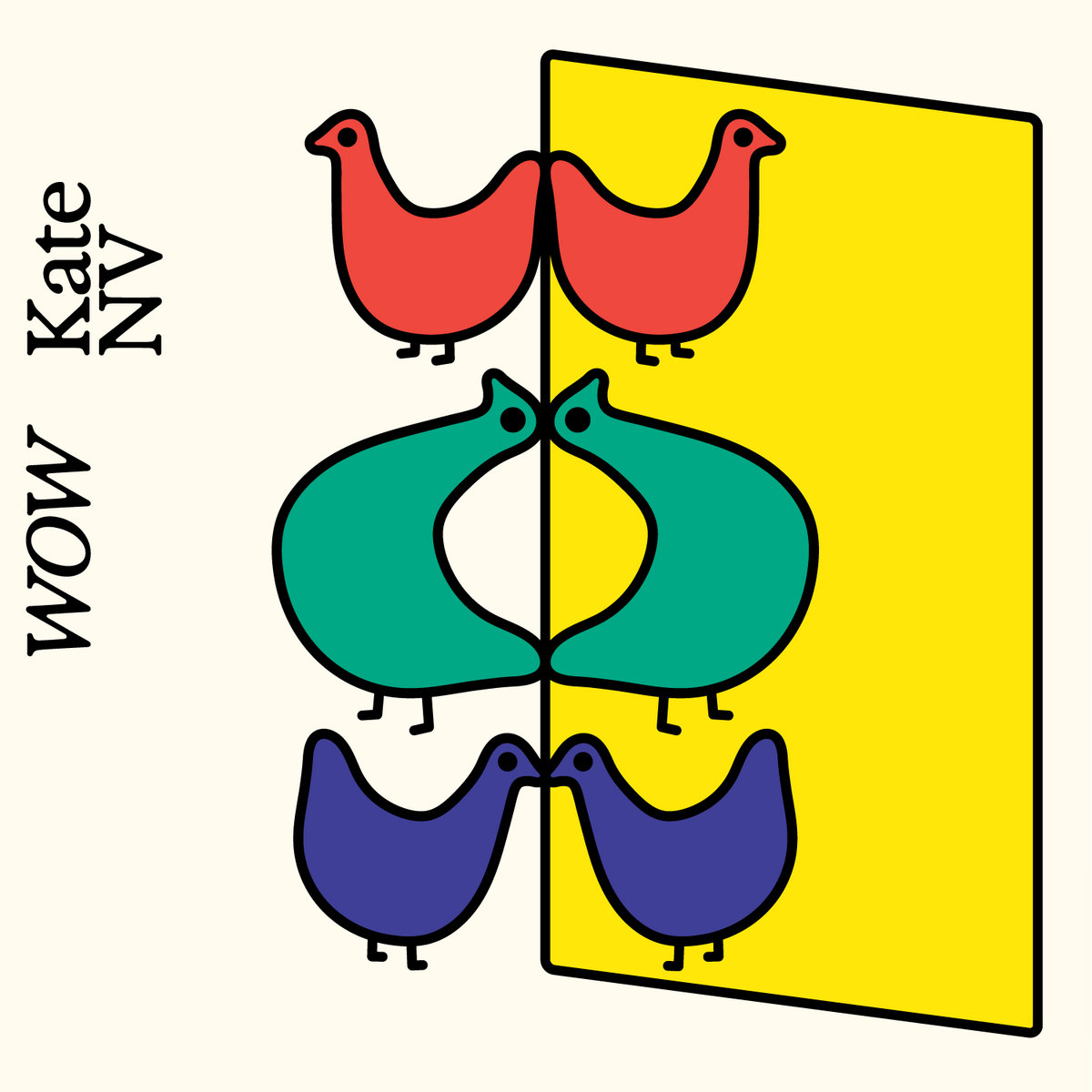
Kate NV – WOW
[Rvng Intl.]
Playing WOW to the unsuspecting can be sure to earn you some inquisitive glances and comments. The latest from Russian weirdo-pop purveyor Kate NV sits in some strange crossover between elevator music, new age music, children’s TV soundtrack and ASMR sound board. But she pulls it together in a way that is more compelling and downright cheeky than any of those styles are usually.
A far cry from the densely populated sounds of her 2020 album Room For The Moon, WOW is light and airy, its tones and sounds scattered on a white background – akin to the cover art. NV is often absent vocally, allowing her carefully deployed sounds, selected synth tones and wisps of sax to do the talking. Finding any kind of meaning – or even a groove – to latch on to can be tricky; these songs lack hooks – heck, they don’t even really have bass. It’s not that the Russian trickster doesn’t want you to be comfortable, but it can be daunting trying to get a handle on this uncanny world of electronic sounds. It’s as if she’s invited you to sit down in her living room but all the chairs are odd shapes or delicately balanced and you’re not sure how exactly to fit in.
But it is in simply relinquishing any desire to find order amid WOW that you then start to appreciate it. It is fun to hear aural portals open up amidst shimmering synths and lightly clicking percussion on “mi (we)”, to wiggle alongside fiddle and sax through an array of chirps and coos on “early bird” or dive into a cornucopia of cutesy ringtones and melodies on the closing “meow chat”. Coming out the other end of WOW feels like exiting some mega casino-arcade having tossed away your change on sparkling, jangling games that you didn’t follow – but you can’t wait to have another try. – Rob Hakimian

Katie Gately – Fawn / Brute
[Houndstooth]
A slyly devious exploration of childhood and motherhood, Katie Gately‘s third album Fawn / Brute is an immersive theatrical production of electronic music. She makes thick, stodgy works, like canvas paintings with centimeter-thick layers of dripping paint. She towers layers of synths, horns, and voice on top of each other until you find yourself with vertigo, looking down from a height you hadn’t realised was built beneath you. “Cleave” struts with the air of a Róisín Murphy track, “Chaw”‘s spoken-word narration owes its kinetic musical bursts to hyperpop, and “Howl” has roots in something that sounds like an American football stadium chant.
While Gately’s lyrics take a little work to penetrate, their poetic lure is enough to dazzle. “Squeamish said the olive oil to the / oven’s lure, to the oven’s purr,” she incants on “Scale”, while on “Meat” she carves vivid imagery with lines like “This winter wept and wallowed, a splinter became a cane.” Aforementioned highlight “Cleave” even manages to make its delicious syllables – “My heart is bark, stiff and stark, cinched up frock of hawk” – sound like she’s taken profanities and backtracked them to alluring effect. It’s just one example of how Gately hooks you in: a siren to become wide-eyed at, and her songs are the perfect bait. – Ray Finlayson

Key Glock – Glockoma 2
[Paper Route Empire]
Loss can be crippling for a rapper’s longevity. While Quavo and Offset seem set on doggedly carrying on in much the same way following Takeoff’s senseless murder, take a look at the general outcome. It’s not unfair to point to Proof’s death when reflecting on how Eminem became a rapping robot, Ski Mask the Slump God seems to have all but disappeared, the list goes on and on.
When Key Glock lost his cousin, mentor, and inseparable rhyme partner Young Dolph, all bets were off. Some thought he’d simply walk away, especially given his preexisting fatigue with hip hop and wariness of building relationships with artists outside of his immediate circle (see “Fuck a Feature” on this very project). Surprisingly, if anything, he reemerged more convicted than ever. Grief no doubt circles Glockoma 2 (“I lost my dawg, every day this shit hurts”), but he’s as limber and vicious as ever. Also unchanged is his envious selection when it comes to production. As sure to have you banging your head with the bass as feeling the crater left behind in the wake of Dolph’s passing, this one stands as one of the year’s most defiantly essential rap projects thus far. – Chase McMullen
Lankum – False Lankum
[Rough Trade]
Across their albums to date, Irish quartet Lankum have proven to be alchemists at fusing the long-held traditions of folk music with more modern approaches, and fourth record False Lankum is their best showcase yet. They take ownership of a standard on eight-minute opener “Go Dig My Grave”, with Radie Peat’s piercing tones telling the tale of parents discovering their daughter’s hanged herself – then Lankum slide into a seasick drone for the second half of the song, underscoring the indescribable dread of the situation. It’s a hair-raising introduction to the album that is sure to send a shiver down the spine of any uninitiated.
False Lankum doesn’t remain this dark throughout. In fact, second track “Clear Away In The Morning” is exactly what its title suggests; a fresh new day after the preceding horrors, the layers of instrumentation hovering like early morning mist that is then brushed away by a breeze of gorgeous harmony. Elsewhere we’re treated to more classic folk stylings as Lankum unfold tales of illicit love, mythical beauties, murderous husbands, Monday morning hangovers and more, all set to dynamic, rustic and downright beautiful accompaniment.
And False Lankum is also home to some thrilling instrumentals. Even in these songs, Lankum’s playing is so expressive and rousing that it feels as though they’re telling stories through melodies – because that’s what they are to their very core: storytellers. All they ask if for you to gather round and lend your ears and soul. – Rob Hakimian
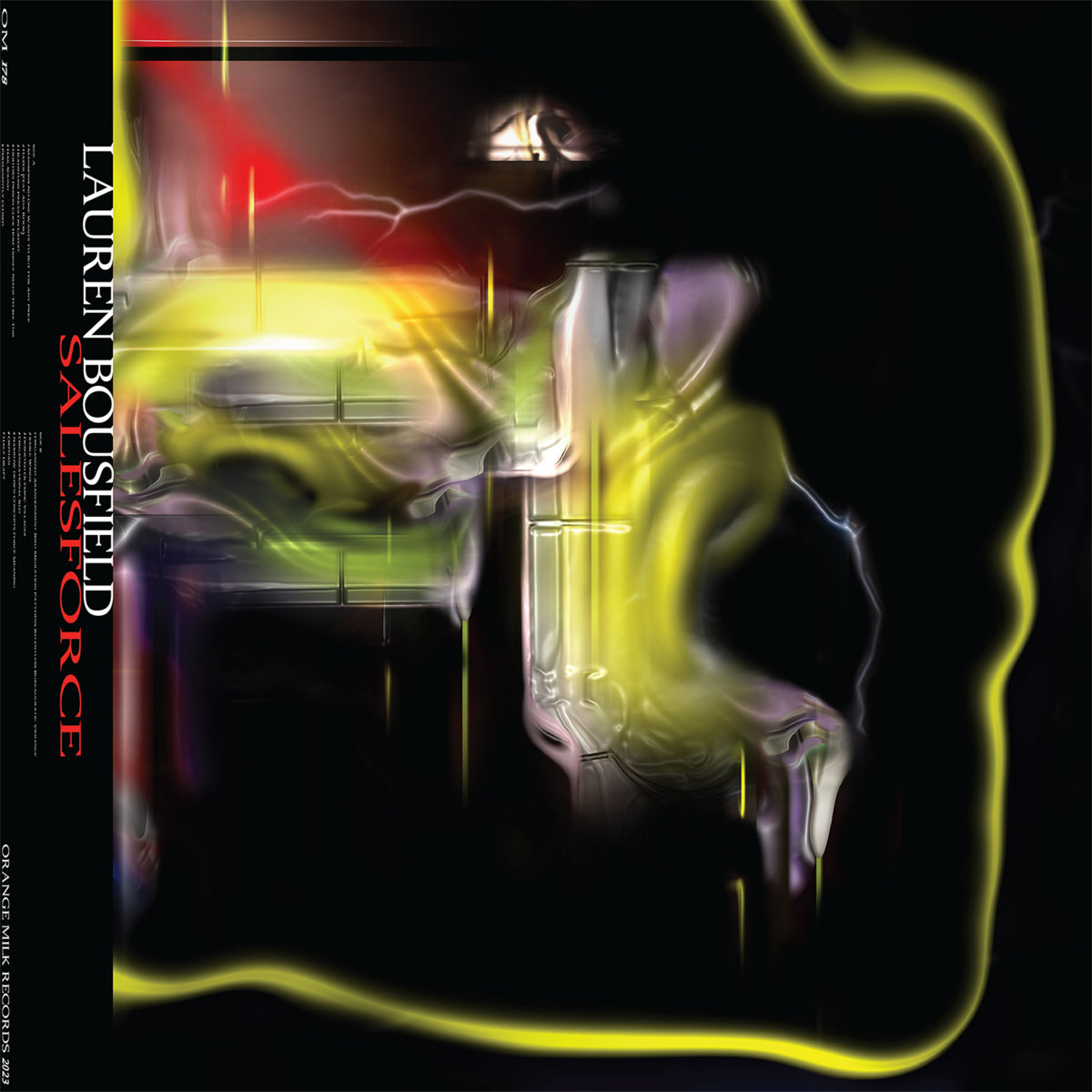
Lauren Bousfield – Salesforce
[Orange Milk]
With Salesforce, Lauren Bousfield streamlines her previous work – released under her own name and the moniker Nero’s Day at Disneyland – forging 30-plus minutes of counter-capitalistic, indeed anarchic sonic palimpsests. On “Mansions No One Wants to Buy for Any Price”, her voice is XMU-friendly, even Caroline Polachek-friendly, though it takes on an agitated timbre given the way it’s battered by frenzied synths and warped melodic fragments. On “Hazer”, Ada Rook reminds us why she should probably make an appearance on every album with horror, metal, or hyper- tendencies. Her demonic shriek and Bousfield’s cacophonic instrumentation give new meaning to Jim Morrison’s notion of “a long, prolonged derangement of the senses”.
“Hail Sound” features Bousfield’s classical piano leanings vis a vis a pot of coffee and a cupful of sugar. “Organized Abandonment Bird Migration Patterns Relentless Bureaucratic Violence” is built around percussive parts that take their cue from Sophie and Arca and expedited piano doodles that would give shredder Yngwie Malmsteen new faith. “Organizational Rot” draws from electropop and again demonstrates Bousfield’s vocal versatility. That said, the piece soon ruptures at the seams; percussive, synth, and piano elements blend, clash, complement, and juxtapose. A listener is tossed about like a proverbial paper cup on a stormy sea. In this way, Bousfield crafts a project that captures a contemporary zeitgeist: the proliferation of narratives, the ubiquity of conflicting/unreliable info, and the crowding presence of almost eight billion egos, every damn one of them hungry, ravenous, insatiable. – John Amen
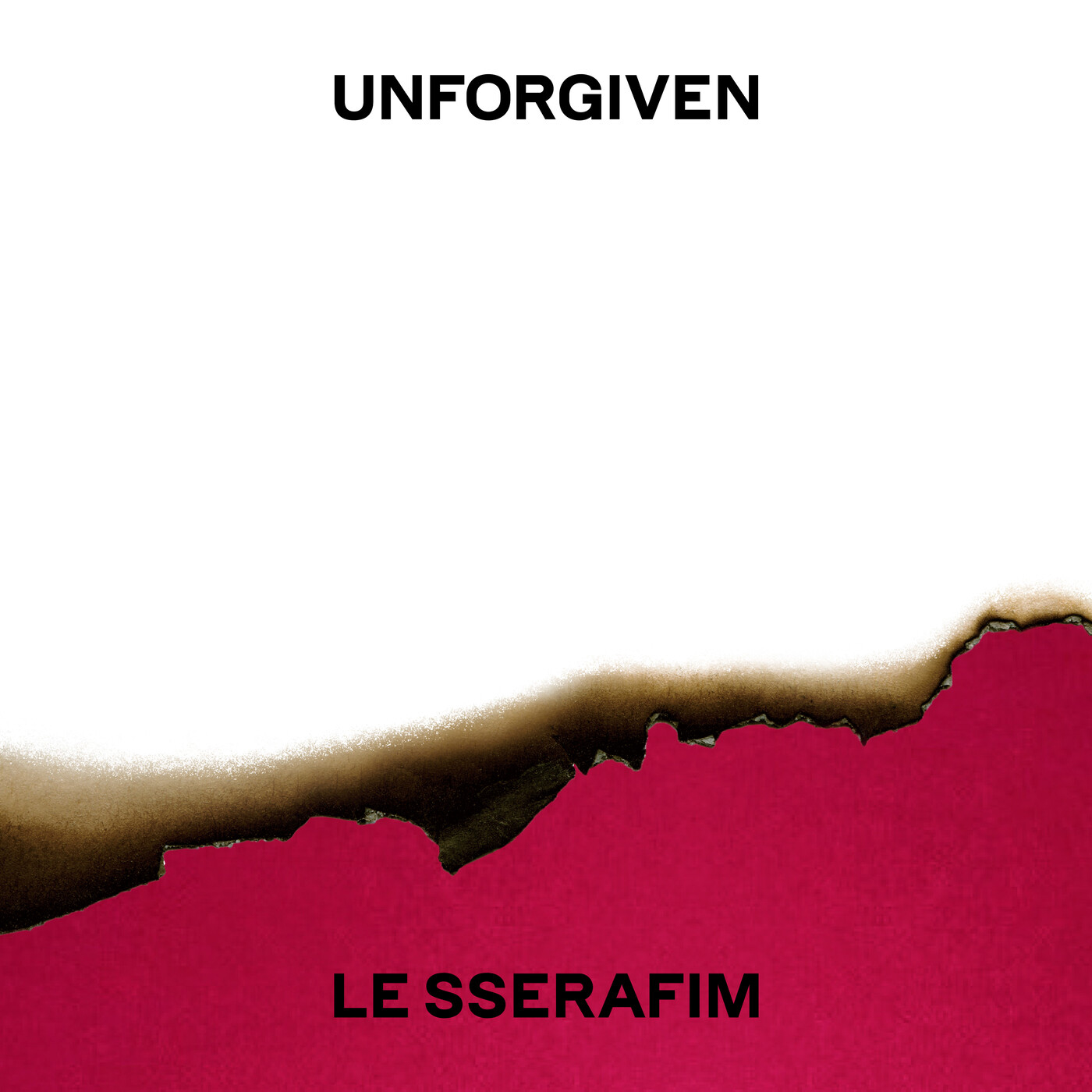
LE SSERAFIM – UNFORGIVEN
[Source / YG Plus / EMI / Universal Japan]
On the opposite end of K-pop in 2023 from the album earlier in this list, UNFORGIVEN practically throbs with manic energy. Where I’ve IVE bears a certain maturity, almost stately at times in its presentation, LE SSERAFIM present a world lost in something resembling sheer panic. Not every single idea works, but when they’re boldly throwing every single idea at the wall with this much confidence and energy, you can’t help but get swept along.
From its gloriously disparate influences, Mythological inspirations, and freakin’ Nile Rodgers, UNFORGIVEN certainly isn’t afraid to take big swings. It’s as deliriously enjoyable as it is brazenly wild. Longtime fans may grumble about the inclusion of rehashed songs, but the album seems clearly intended to introduce them to a wider audience. Taken in that spirit, you can’t deny the songs simply work together as a whole. It’s an album best just experienced, rather than talked about, so please just go press play. – Chase McMullen
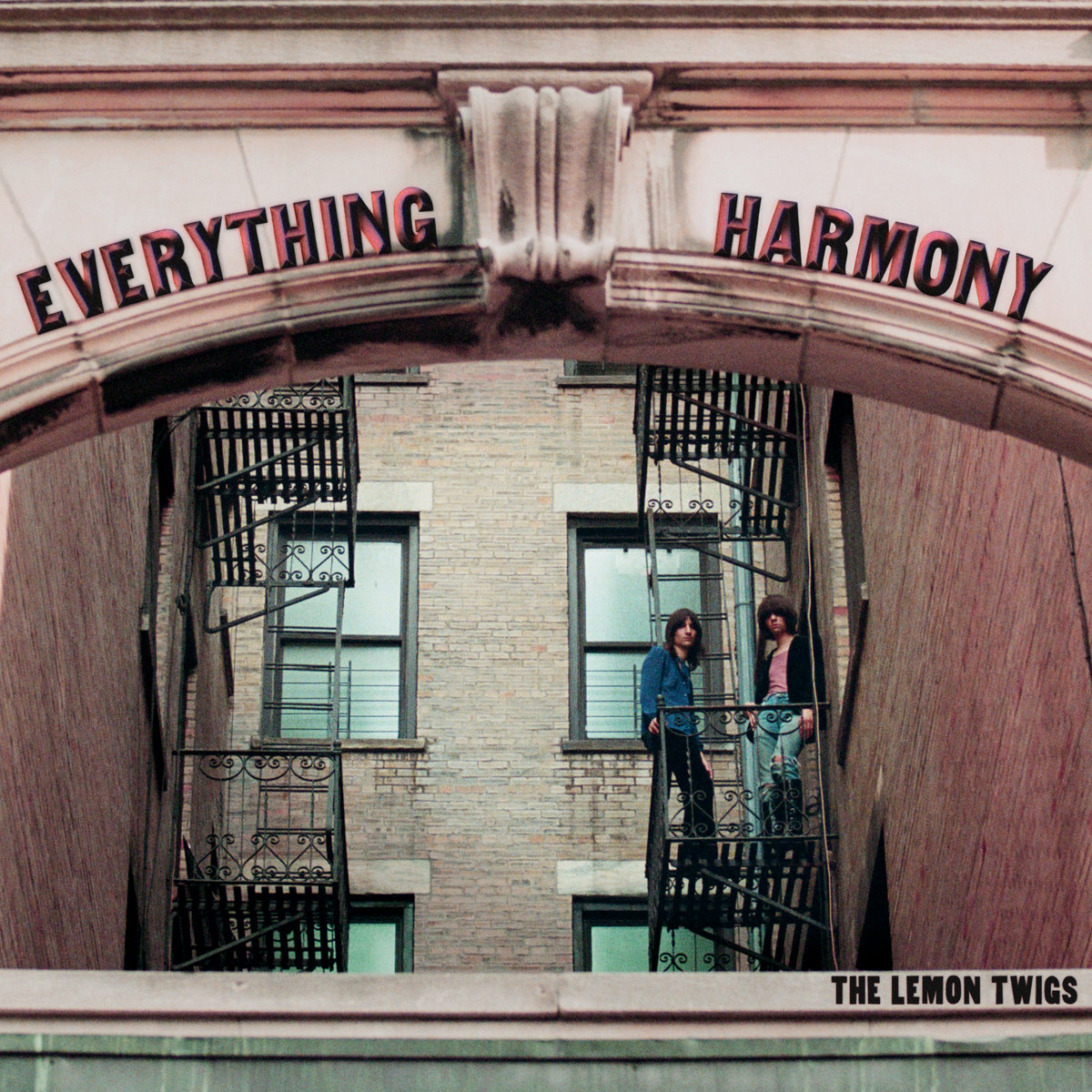
The Lemon Twigs – Everything Harmony
[Captured Tracks]
When does influence lead to unintentional imitation? Can a band so thoroughly embody their own inspirations that they lose whatever spark of uniqueness drew their audience to them in the first place? These are questions I kept asking myself as I spent time with Everything Harmony, the latest album from New York sibling-duo The Lemon Twigs. But the deeper I fell into its soft rock embrace, the more I realized that these questions were pointless and were needlessly shaping my perspective on the music. Brian and Michael D’Addario have certainly veered into 70s territory here, merging a Laurel Canyon folksiness with Pet Sounds-era pop pureness, but rather than judging it on its reliance on those musical ancestries, the album simply suggests that music can be informed of history and wholly unique, a statement of what’s come before and what is yet to occur.
The melodies are immaculate and spin around your head, offering an uncommon radiance and warmth even when delving into more gnarled lyrical narratives. The spirit of Alex Chilton would be pleased, I think. They evoke the rattling garage pop of Big Star on “What You Were Doing” and a shimmering indie effervescence on “Ghost Run Free”, though it’s the opening track, “When Winter Comes Around”, that marks Everything Harmony as something truly special. It sets the stage for what’s to come and so perfectly balances their soft rock (not yacht rock) affections with a desire to prove their mettle to all those bands they obviously admire. Self-deprecating at times and filled with wonder elsewhere, the D’Addario brothers haven’t simply created a remarkable pop-rock record – they’ve taken us back to a time when music felt absolutely necessary, and hearts could be broken and healed by a single melody. – Joshua Pickard
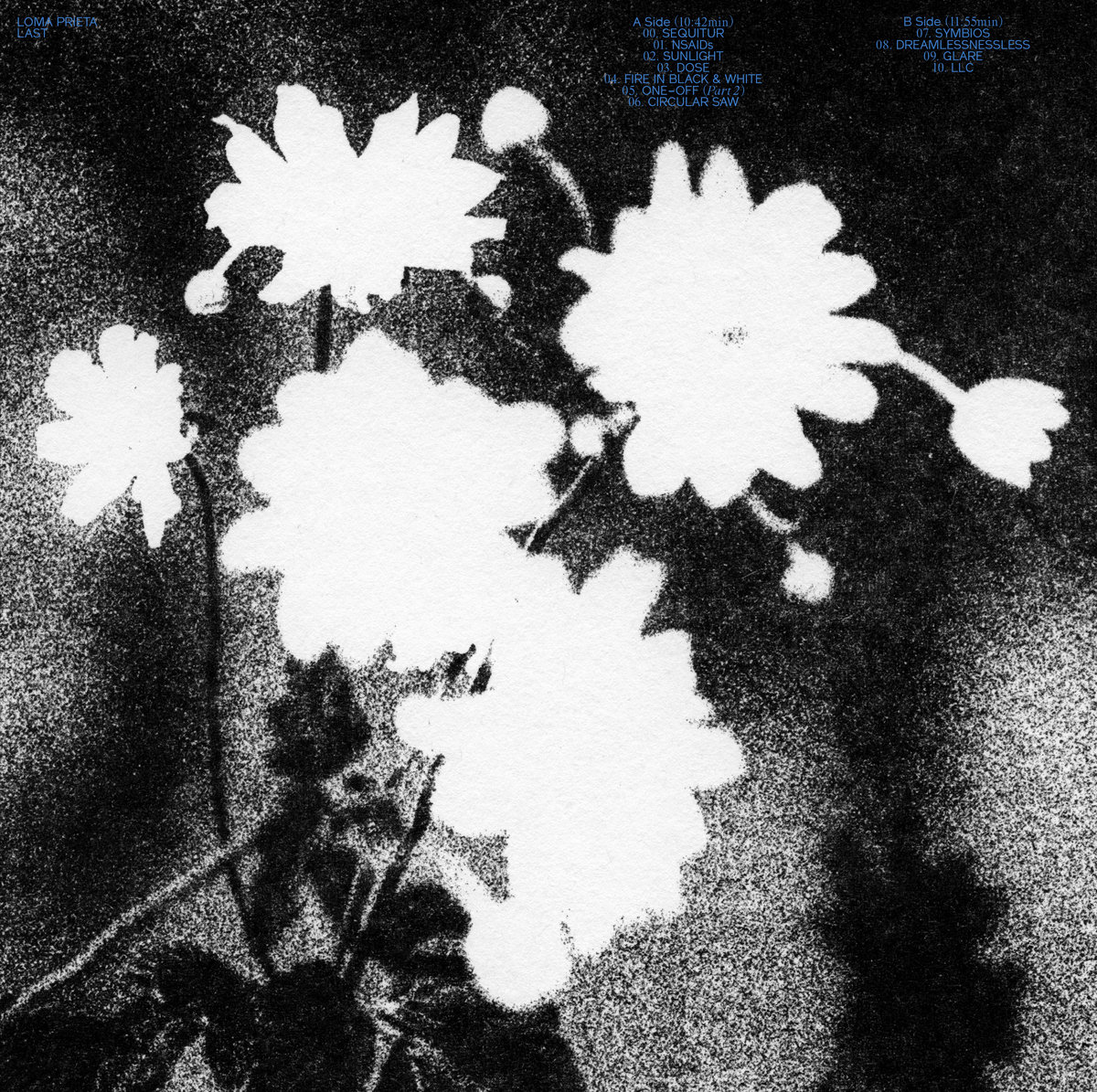
Loma Prieta – Last
[Deathwish, Inc.]
Eight years on from their last album, the urgency of San Francisco band Loma Prieta has not diminished one bit. It’s been a tumultuous time since their last full length, and every inch of that strain is injected into Last, a vital and invigorating 34 minute blast.
While pigeonholed as post-hardcore, Last finds Loma Prieta displaying how they can maintain the tenets of the genre but put on a diverse show. There’s pace and urgency to every track, both in the rapid fire percussion and Sean Leary’s lung-bursting voice, but the magical melange of bass and guitar reflect the complex array of emotions within that desperation. From song to song, they swerve from blocky divebombs to beautiful blasts to crunchy experiments to burning pires of ascendant chords. They stray into post rock and black metal, always with precision and purpose – they’re not tourists in these sounds but a steady-minded, clear-eyed and experienced band who can furnish their fears in a variety of styles to get across the desperation.
Let’s just hope the title Last is about the band’s ability to last through it all – not a sign that this is the end of the road, as they’ve proven here that they still have an abundance of brilliance to be tapped. – Rob Hakimian

Lonnie Holley – Oh Me Oh My
[Jagjaguwar]
There’s an aged insight constantly burrowing its way through Lonnie Holley’s Oh Me Oh My, an album as profound at times as it is unexpectedly experimental. Featuring Moor Mother, Michael Stipe, Bon Iver, Sharon Van Etten, and others, it presents itself as something of a historical document, a collection of personal stories passed down from one man whose life has been shaped by tidal forces beyond our reality. The sentiments expressed are timeless, and yet, they feel absolutely vital in understanding the terrible things we’ve all endured over the last few years. Holley is a teacher, a spiritual mentor – but there’s nothing heavy-handed about these songs. There isn’t a false note here, nor a moment when you sense anything but complete empathy on his part. He wants to help, to educate, to guide, and this record functions as his platform for emotional and social revelation.
His voice is ragged but fully realized, a shivering beacon of hope in a world shrouded in shadows. The music, a mix of blues, rock, indie, and whatever else he cares to include, is all in service to his unmatched perception of the world and how best to acclimate to its ravages. Drawing on his guests’ talents, those tracks are both a showcase for their individual creativities and a moment for Holley to mold those sounds into something wholly his own. Nothing is lost, and the weight of his words evoke an emotional freedom, a sense of hard-won independence from the gravity of so many years spent fighting against the burdens laid upon him. There is a way forward; there is a light at the end for those whose eyes can raise to meet his. The path isn’t easy, but Lonnie Holley is with us until the music ends and the troubles of this world are just distant memories. – Joshua Pickard

Lucy Liyou – Dog Dreams
[American Dreams]
Forging her take on sonic diarism, Lucy Liyou releases her second album, the three-track Dog Dreams. Translated from the Korean 개꿈, the term refers to a range of reverie states, from a blissful daydream to a night terror, typically accompanied by a clarifying awareness that the experience is illusory or unreal. Much like her aesthetic peer claire rousay, Liyou is equal parts student, zen practitioner, and flaneuse.
On the title track, Liyou works with “found” sounds, perhaps water dripping, excerpts from a hypnagogic soundtrack, and modified whispers. She adds trebly drones and random percussive elements, eventually pursuing a semi-orchestral mix, including a free-flowing piano part, and an altered voice at once reassuring and creepy.
“April in Paris” continues to make use of whispery vocals that occasionally morph into mock-operatic moans. The soundscape is understatedly busy – synthy notes, atmospheric accents, the crunch of footsteps. “I’m going to the cemetery”, Liyou announces, introducing the element of death. The piece closes with a Basinski-esque background of shimmery textures, fading into a more dystopian-leaning welter.
Closer “Fold the Horse” continues to move between the ethereal and earthy, celestial and frightening, soothing and agitating, Liyou addressing the way in which we occupy multiple worlds and identities. A keen attunement to detail suggests her appreciation for material reality; on the other hand, she revels in limbic processes and nonlinearities. With Dog Dreams, Liyou skillfully conjoins the phenomenal and the noumenal, reminding us that we’re made of flesh and stardust. – John Amen
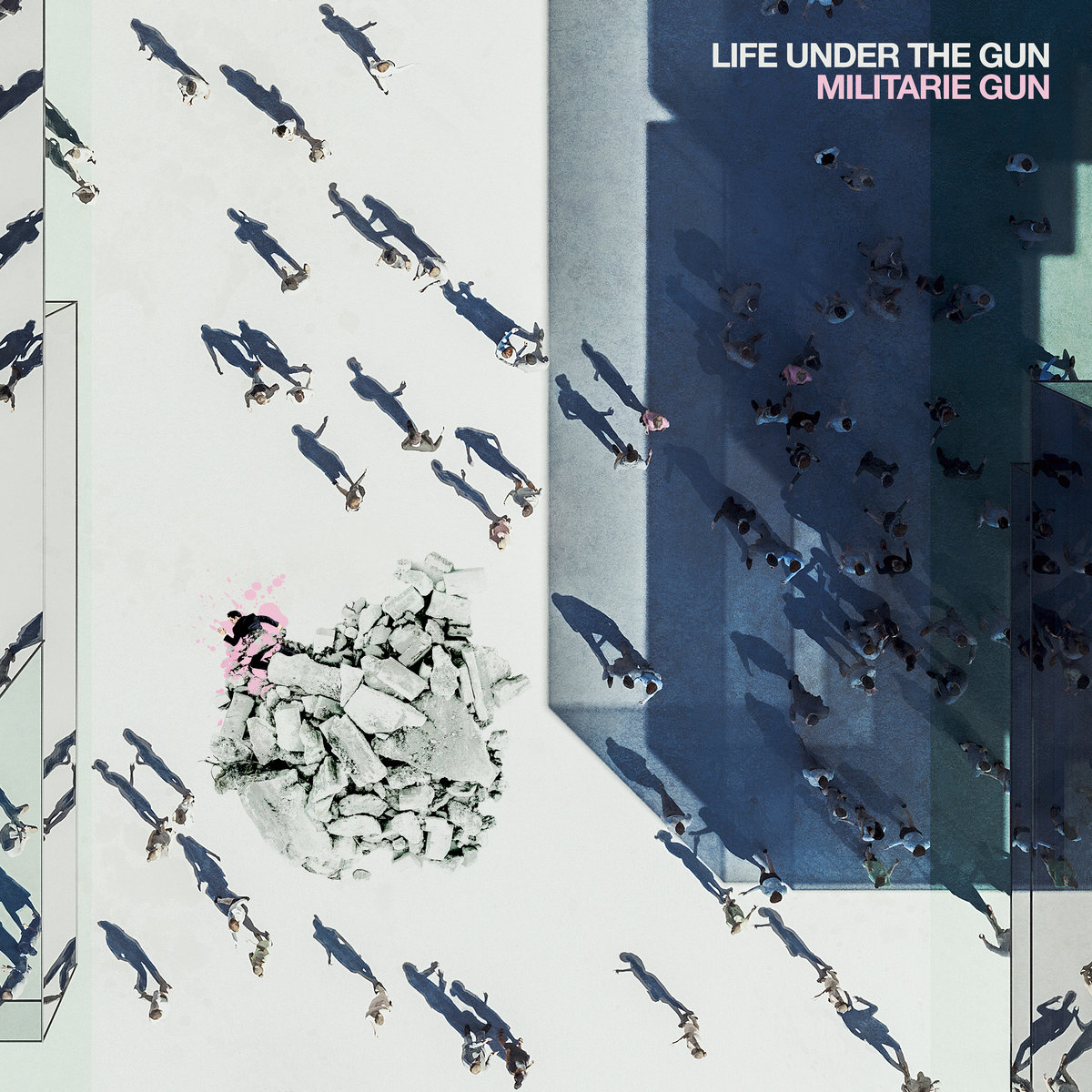
Militarie Gun – Life Under the Gun
[Loma Vista]
It’s the same narrative arc as Baltimore’s beloved Turnstile: DIY post-hardcore darlings turned mainstream rock “up-and-comers” now drawing the ire of moshing hardcore traditionalists dwelling in the underground. Purists will always be angry, but no matter their feelings, Los Angeles’ Militarie Gun, like their aforementioned east coast counterparts, have undergone an impressive transformation, overlaying their irate post-hardcore sound with a considerably more melodic and colorful pop-leaning front on their debut full-length, Life Under The Gun. It doesn’t try to reinvent the wheel or veer into experimental territory that bleeds past genre boundaries — it’s even slightly unimpressive at first. However, Life Under The Gun does see the band – who made a name for themselves making pissed-off music befit to the crowded, heat-baked Los Angeles – tear down its walls for a record that is just as emotional and charismatic as the furious EPs that got them here. They may be big-time now, rubbing shoulders with Post Malone these days, but the honest, emotional core will always remain untouched for the scrappy, now a bit mellow and contemplative, Militarie Gun. – Kyle Kohner
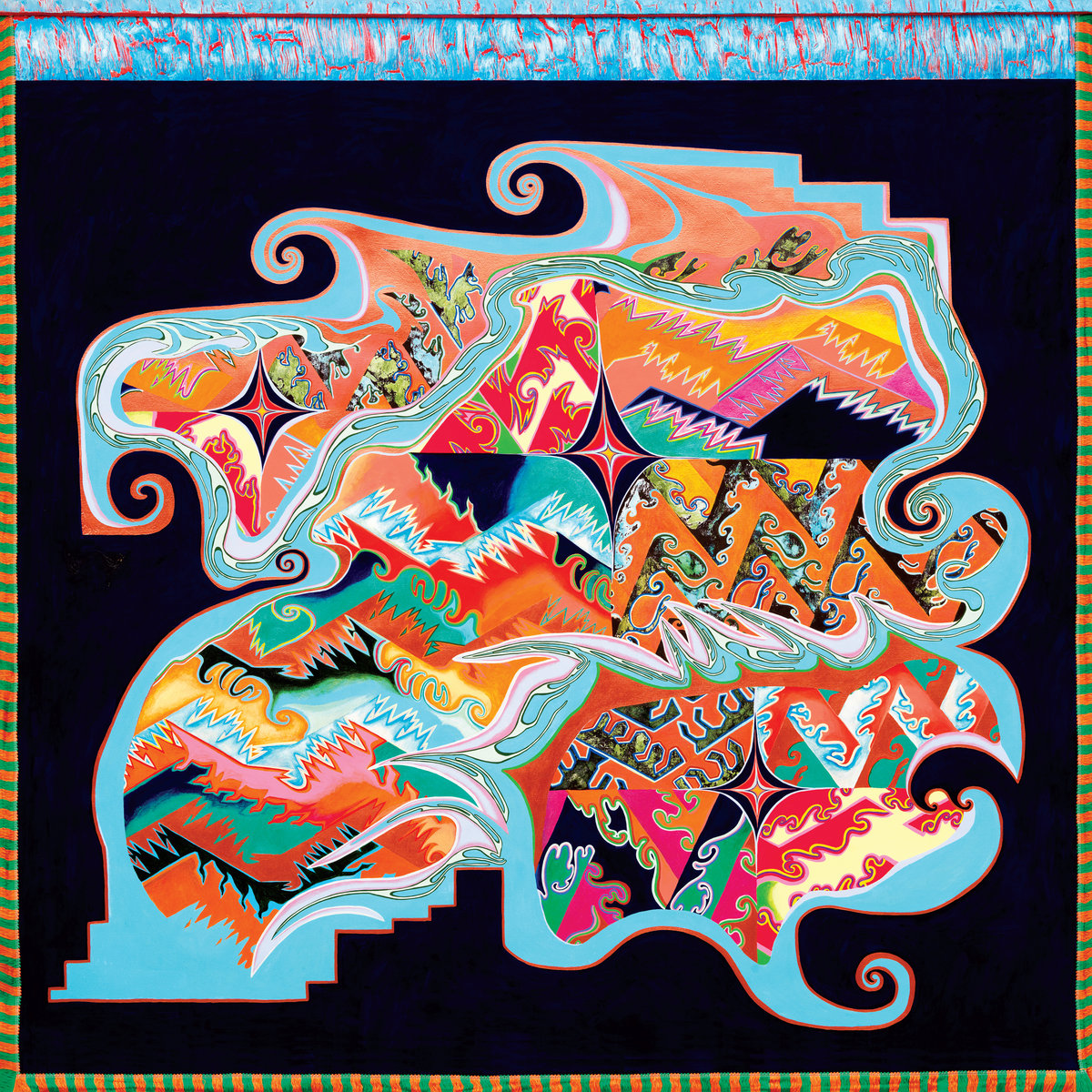
Natural Information Society – Since Time is Gravity
[Eremite]
Led by composer and multi-instrumentalist Joshua Abrams and featuring a dozen musicians from Chicago’s improv community, Natural Information Society is more like an institution than a band, a shifting jazz collective where musical reconstruction is encouraged, and experimentation is used as a means for personal evolution. Their latest album, Since Time is Gravity, finds them employing sax icon Ari Brown’s hypnotizing patterns in search of some ancient rhythmic wellspring of sound, tapping into a vein of music that appears ancient and thrown free from the flow of history. Alternating between minimalist execution and moments that reveal an unexpected conversational density, the record acts as a conduit for Abrams’ fascination with blending the melodic timbres of North African music with the endless swirling vortices of jazz.
Anchored by Abrams’ use of the guimbri, a hide-covered lute common in Moroccan music and often associated with the Gnawa people, the album suggests that music can provide safe haven for anyone wanting to distance themselves from the chaotic world around them, percussive elements act as buffers to unnecessary distractions while plucked strings shiver and echo in that comforting space. But Since Time is Gravity doesn’t just provide a place for reflection and emotional realignment; entire worlds are built from the contours of its jazz deconstructions. You quickly realize that their use of repetition and droning tones functions as a way to provide contrast the organic undulations that form the melodic underpinning of each track. This album is a mystery unwilling to conform to genre standards, somewhere we can step out of time and lose ourselves in the labyrinthine corridors of its sounds. – Joshua Pickard
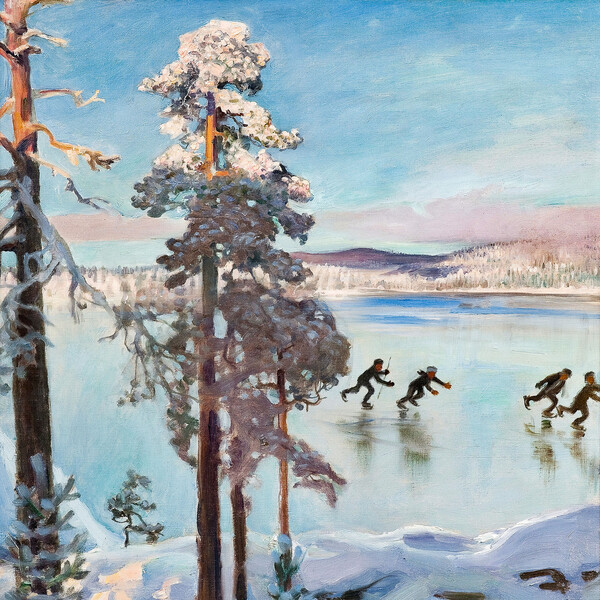
NODUO – NODUO
[NOGOD]
It’s rare that a hip-hop album can be described as gorgeous, though there are exceptions. One of them is the self-titled debut album from Toronto twosome NODUO, a collection of string-filled orchestrations, jazz-rap oscillations, and malleable beat-driven atmospheres, all of which was assembled by rapper-producer Nonazz and rapper no god. with help from guest singer gothic delphine and rapper Sneaky Preacher.
Veering between minimal rhythms decorated with soaring strings to elastic boom bap exultations that eventually collapse in on themselves, the record feels both laidback and imbued with a restless creativity. Waves of classic soul break across the various hip-hop landscapes on display, offering a groovy counterpoint to the starker influences that Nonazz and no god. have torn apart and repaired in service to the dazzling world these songs inhabit.
From the brass euphoria of “Scintillation” to the lush soul-pop echoes on “What Happened”, the album plays loose with genre concepts but never sacrifices its own unique musical identity. The dense strings on “Light Industry” recall the classically tinted work of Chris Connor or Joni James while “Seabird” evokes the hybrid rhythmic collages that Madlib favors, with keys that dance and whirl before ending on a sample from the original Friday the 13th film. There’s a certain meditative aura to these songs, a reflection of experiences from their youth that shaped their appreciation for sounds of all contours and angles. But as often as they look back and consider where they’ve been and what musicians have soundtracked certain moments in their past, this album is equally concerned about what the future holds and where their entangled creativities might lead them. – Joshua Pickard

OLTH – every day is sOmeOne’s speciaL day
[Zegema Beach]
Comprehension is really overrated sometimes. Just ask NYC screamo (with just a touch of black metal) outfit OLTH, and they’ll likely agree that, from time to time, the words just don’t matter all that much – it’s the undiluted emotion and sense of community that speaks in their place. On their debut album, every day is sOmeOne’s speciaL day, the band treat singer Sean Kennedy’s voice as just another texture to be warped and mutated beyond recognition. Recalling the vicious experimentation of The Locust, though a bit more accessible, OLTH have created a misshapen chimera from the rotting viscera of punk, metal, and hardcore. But here’s a question: why is it so fucking catchy? This is limb-flaying, bone-breaking stuff, and yet, they’ve managed to make it almost hummable, resulting in a melodic behemoth drenched in the guts and the sweat of each person who had a hand in its creation.
Other than the four-minute oddity “>_<”, the album traffics in a brutal brevity, making use of blistering tempos and banshee vocals as the band attempts to blot out any obstacles standing between them and the lives they desire. At its core, the album documents their search for happiness, for personal meaning in a world that constantly looks to deny emotional satisfaction. There are moments, however, when the band makes room for a slower reflection, as on closer “The LasT sOng” and album highlight “sOng fOr jOrdan”. But these calmer flashes aren’t really indicative of its overall perspective, though they do provide necessary relief from such a constant bombardment of volume and rhythmic chaos. OLTH have constructed an album of considerable density, one where amplitude is often associated with revelation and maintains its anarchic ideals against those who would seek to diminish its ambitions. – Joshua Pickard
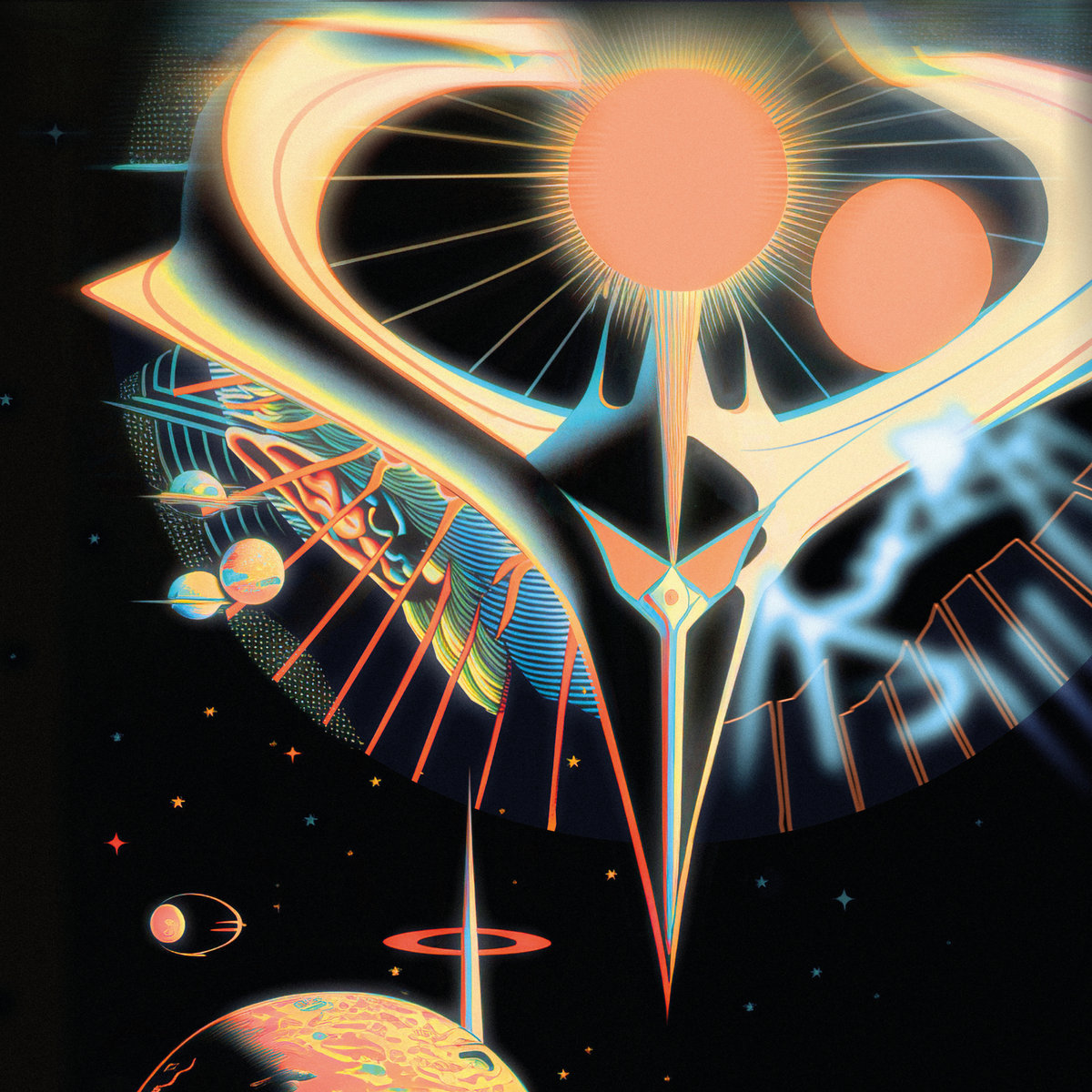
Packed Rich – Warp Fields
[Ilian Tape]
I’ll put it plain: I’m a sucker for sci-fi inspired electronic music. With SleepResearch_Facility’s Nostromo still holding the golden tier of my personal favorite, I’m always on the search or more material in the arena.
So, needless to say, thanks to its title and artwork, Packed Rich‘s Warp Fields immediately had my attention. Thankfully, it goes beyond surface science fiction aesthetics, proving a rewarding and adventurous listen. “Disembodied” has Metroid Prime vibes, and the entire affair generally gives you the feeling of nonchalantly exploring distant worlds. Journey onward. – Chase McMullen
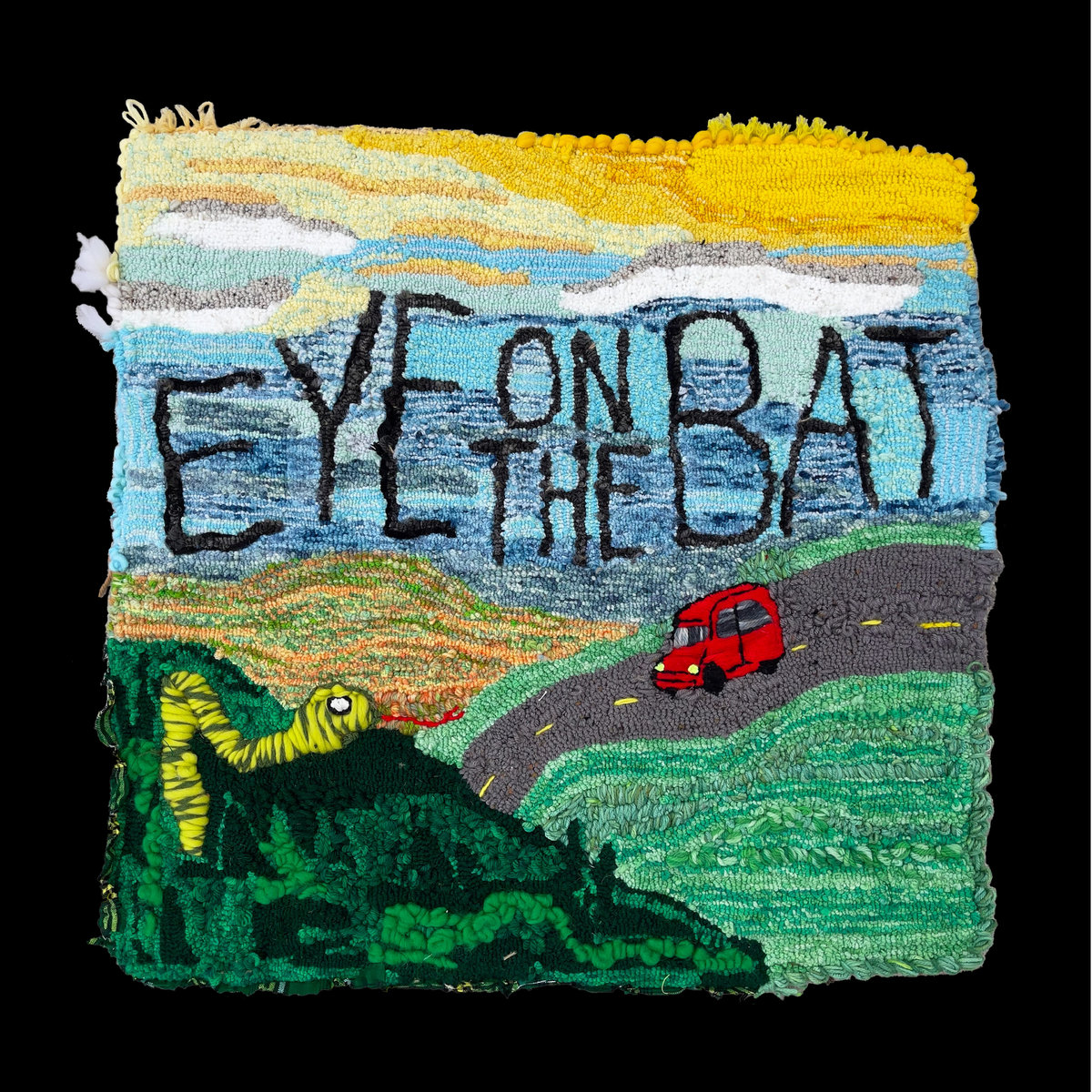
Palehound – Eye on the Bat
[Polyvinyl]
El Kempner aka Palehound has always been unafraid of displaying their shortcomings, bad habits and unpleasant tales through their music, and with Eye On The Bat they might have delivered their most affecting bunch yet. Centrepiece “My Evil” has shot right to the top of Palehound’s best songs, as it is such a perfect encapsulation of what Kempner does well; being honest, humorous and shocking while packaging the punches in an utterly catchy grunge-lite sound.
Elsewhere we have electronic dabbling in the pulsating “U Want It U Got It”, a treatise on good and bad jokes in “Good Sex”, bouncing, frustration-filled stadium rock on “The Clutch” and an exhaustedly pretty acoustic bop in “Fadin”. Throughout, Kempner barely sees a ray of sunshine in their tales of lust, loss and embarrassment, but paired with their catchy, muscular riffing, their crusades become our own, and we find ourselves shaking our heads and fists in unison with their annoyances. An album that will have you by turns humming, bopping or thrashing along with it, Eye On The Bat is a perfect pill to wipe out a blah day and fill you with righteous emotion. – Rob Hakimian

Protomartyr – Formal Growth in the Desert
[Domino]
A record of emotional opposites, Formal Growth in the Desert finds Protomartyr at their musically most adventurous and lead singer Joe Casey at his most nakedly personal. A journey spanning from the end of the lockdown-era (“Make Way”) to Casey finding himself at the happiest moment of his life (“Rain Garden”), the album’s title can be read as his personal development in a time of barren emotional landscapes that still remember the anxiety of Corona. Solace to private upheaval and tragedy – such as grieving his departed mother (which he processes in “Graft vs. Host” and “The Author”) and confronting the break-in of his home and lacklustre police response thereof (“We know the Rats”) – comes in a constant forward-motion that carries Casey’s soul forward through time. During this journey, “Make Way for tomorrow” transforms into “Make Way for my Love!” Fashioning images from road movies and Western films into a landscape of American wastelands is contrasted his embrace of finding – and accepting – love, the way out of the cruel urban jungle that is home to ageing jocks (“Fun in Hi Skool”) and brainbroken billionaires (“Let’s Tip the Creator”).
Parallel to his lyricism blossoms strong musical exploration: inspired by Ennio Morricone’s soundtracks (particularly his works beyond the Western genre), there’s a newfound euphoric pathos in Protomartyr’s compositions. Resembling the working class glam of Suede or The Smiths at their darkest and fellow Detroit shoegaze legends Majesty Crush, there’s genuine anger and fiery passion in the vast expanses of these songs, beautifully framed by distorted pedal-steel guitars. Yes, this is a political record about our everyday experiences with the police state, with corporate overreach and mass extinction caused by capitalist greed. But it’s also observing the tiny moments of our everyday biographies that make our struggle into epic biblical poetry. When Casey belts out “I’m BACK” on “Polacrilex Kid”, he means it. Ruminating the stale taste of nicotine chewing gums, he provides us with a humble life philosophy – or war cry – in the eye of seemingly insurmountable adversary: “Keep chewing, kid!” Possibly Protomartyr’s most important album in a line of outstanding releases, Formal Growth in the Desert is a mature and gentle record filled with healing anger and genuine euphoria for tomorrow, whatever it may bring. – John Wohlmacher

RealYungPhil – Victory Music
[Self-Released]
RealYungPhil‘s bars have such an off-the-cuff nature to them – he largely freestyles them on the spot, after all – that, to many an old head, they’re likely to come off as half-baked. Yet, the more time you spend with him, the more lived-in and essential his seemingly casual utterances feel. His music is also, undeniably, greatly aided by his superior ear for beats: for this project, he looked to Sweden, tapping, primarly, Gud and Woesum.
Even at his most casual (i.e. how he raps 99% of the time), he somehow sounds at home over just about anything, taking an unusual soundscape that’d have most rappers scratching their heads or attempting verbal acrobatics that’d make even Marshall Mathers roll his eyes, Phil simply sticks to his low key guns. Victory Music may even feel like a rather ostentatious title for largely unknown rapper (before Pitchfork’s Alphonse Pierre kindly shed some light in his direction, at least), but there’s no label more apt for this collection of music. This is music meant to be be played while feeling supreme, untouchable – this is music, quite simply, for feeling above it all. – Chase McMullen
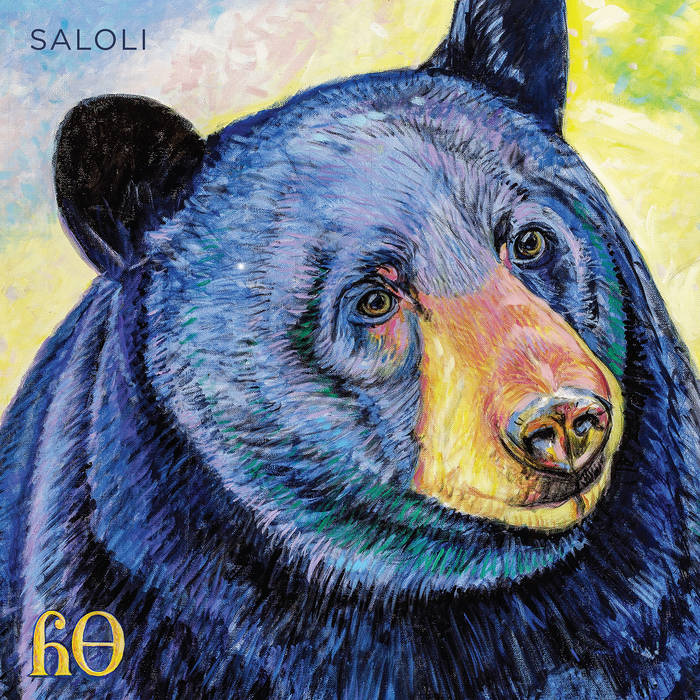
Saloli – Canyon
[Kranky]
Portland-based synth composer Mary Sutton has described her newest album as Saloli, Canyon, as “a day in the life of a bear in a canyon in the Smoky Mountains”. It’s through this avatar that she audibly investigates her Native American roots, her strolling, conversational pieces acting like ambling pathways through the nation’s wild landscape and her mind simultaneously.
Of course, with instrumental music interpretation is within the ear and mind of the listener, but there is something undeniably thankful and welcoming about Canyon. Layers of electronic sound reflect the magnificence of the opening track’s “Waterfall”, there’s an animal’s untainted appreciation of the natural world in the vivid “Yona”, the titular bird makes characterful arks and squawks through the evening air on “Nighthawk” and Sutton’s synths reach out like warm rays of light on the closing “Sunrise”.
Canyon is the kind of album that, like the very landscapes and nature it takes inspiration from, doesn’t come to you. It asks the listener to come to it, to engage with its bubbling and indefinable tones. Once tuned into its wavelength, the vistas are breathtaking. – Rob Hakimian
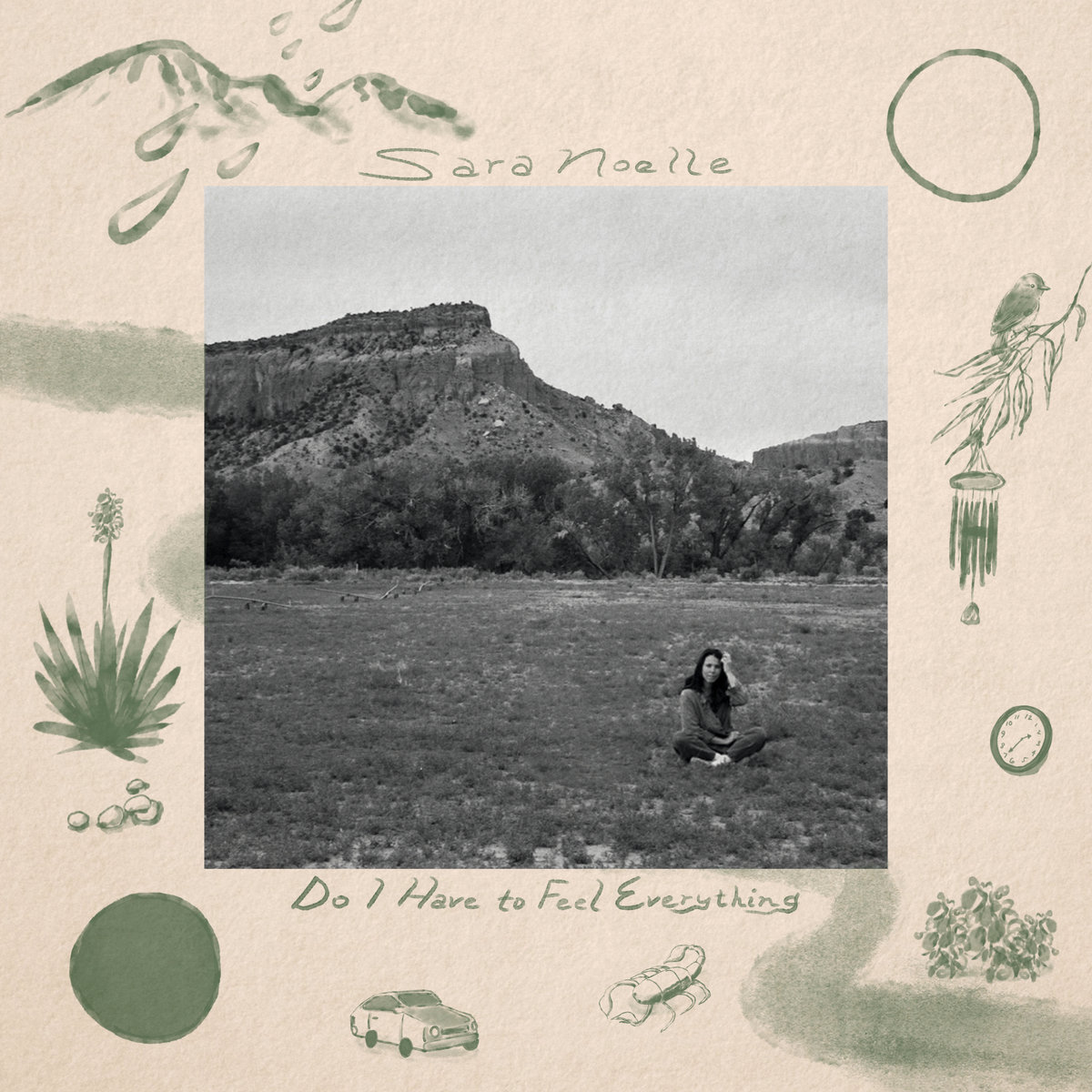
Sara Noelle – Do I Have to Feel Everything
[Self-Released]
Sara Noelle‘s third album poses a question to the listener before the music even begins – but don’t expect a concise answer. The LA songwriter is more concerned with the in-between space of two absolutes; “I don’t know where and I don’t know when / The closer I get, the farther I am,” she poses on the shimmering title track. Noelle’s ambient-inspired music here is like a sky full of stars or a seemingly endless highway disappearing into the horizon. “Hum” glows with glazed and dazed synths while the opening track “Blooming Yucca” has its gaze upwards into clouding skies. If Noelle fully embraced the ambience then there could have been moments here that might have been stretched out for twice their length, ready for listeners to sink into. “I could stay / Stay / Here forever” she offers at one point, and at its best, Do I Have To Feel Everything evokes that exact feeling. – Ray Finlayson
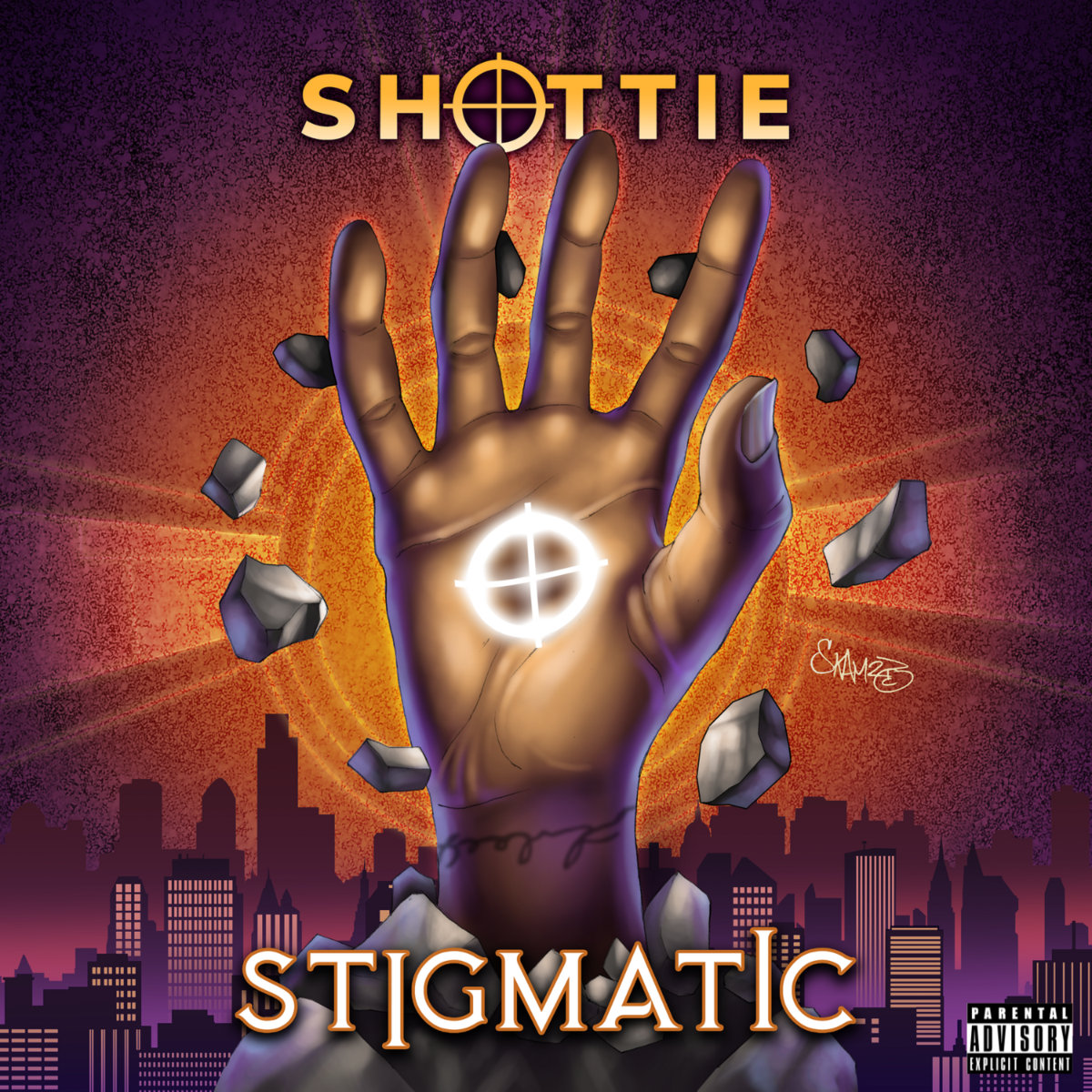
Shottie – Stigmatic
[Self-Released]
Like a shock from an electrical outlet, Miami rapper Shottie gives you a jolt of unfiltered voltage and, along with French producer Digitale, looks to pull hip-hop back a decade or two, to when mainstream rap was populated by booming rhythms and gritty lyrical narratives that pushed artists to dig out the dark recesses of their hearts. Their work on Stigmatic feels true to the spirit of rap, vicious and angry and filled with hostility toward those who might question their purpose and resolve. These songs aren’t content to simply look back and reminisce; they want to share the gravitational pull of their inspirations, to bring that sound into the present and suggest that sometimes looking back is the only way to move forward. On occasion, the album is reminiscent of early Eminem, with the internal mechanisms echoing the erratic complexity of Shady’s breathless flows.
That complicated internal structure is what allows Stigmatic to expand and contract, to evolve beyond the accepted norms of hip-hop and develop an existence undefined by external stimuli. There’s no sense of repose here, only a constant forward momentum that pulls you along in a wake marked by a bruising wit, unexpected musical rearrangements, and a desire to reconnect with the raw emotion and dynamic wordplay that seems to have forsaken the genre in recent years. But Shottie and Digitale are looking to reinvigorate rap music, to eschew temporary trends in favor of timeless emotional relevance through a complete disregard for aesthetic homogeny. And if they happen to get you on your feet, middle fingers raised to the sky, voices elevated together, I would wager that they’d consider it a proper acknowledgement of all the time and hard work they put into making this album. – Joshua Pickard

soccer Committee – ♥ / Lamb
[Morc]
Imagine a place where fog keeps the landscape shrouded in mystery, but where the occasional bit of sparse foliage does break free from the confines of this atmospheric phenomenon from time to time. This is where the music of Dutch singer-songwriter and ambient-adjacent architect Mariska Baars, operating under the guise of soccer Committee, exists and waits patiently for anyone to wander into its reach. Drawing upon primitive folk aesthetics and using them to create a gorgeous and disorienting open world of resonant emotional space occupying a parallel reality of minimal noise used in service to grand revelations. The five-track ♥ / Lamb showcases her ability to mine devastating beauty from deceptively simple musical cues, relying upon her own intuitive responses to these sounds to form a rhythmic theater of reassurance and hazy relief.
The solemnity and vastness of opener “No turn to harm” aides Baars in establishing both the tenor of the album and its inclusiveness. As you succumb to the song’s gentle persuasion, you begin to see that there is so much room to explore and pursue any number of impulses that it seems almost limitless in scope. There are subtle variations buried within the music, and she continues this clever melodic ambiguity in “Reaching”, her voice a spirit wandering endless corridors while ethereal tones hover just overhead to provide guidance and a way forward. Guest musician Wouter van Veldhoven endows “Aride afar” with bowed guitar and tape loop recordings, shifting the track’s skeletal contours into something a bit more dynamic and distorted. As bare and fluid as the album is, Baars never lets it lose its cohesion, holding it all together despite its spectral and capricious temperament. – Joshua Pickard
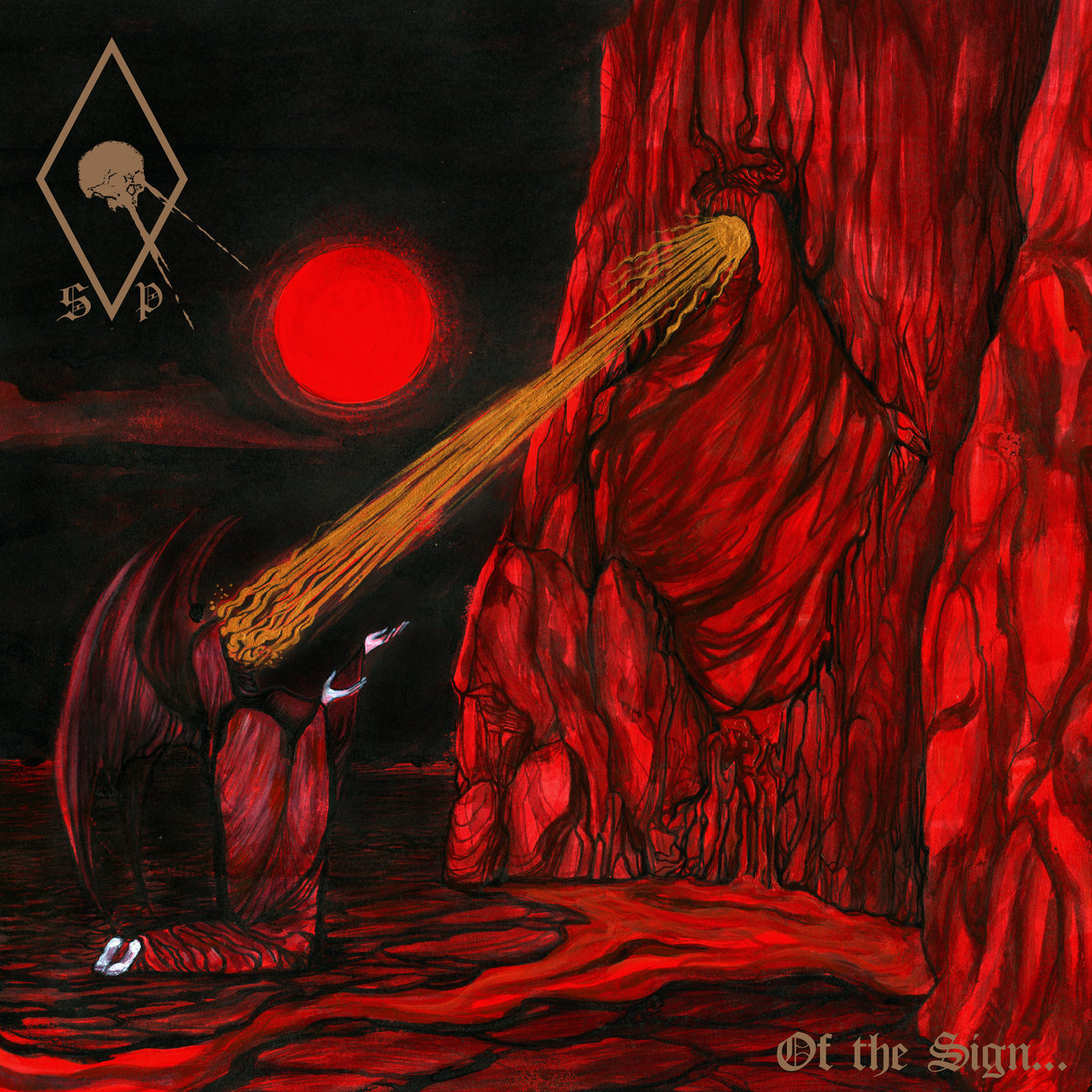
Spirit Possession – Of the Sign…
[Profound Lore]
It’s all scorched earth devastation and maniacal deviance for Portland metal duo Spirit Possession. Built around the twinned musical eruptions of guitarist/vocalist S. Peacock (Ulthar, Pandiscordin Necrogenesis) and drummer/homemade synth peddler A. Spungin (Ormus, Taurus), the band creates a chaotic cacophony that blends their black metal ancestry with something noisier and more experimental. This dedication to adapting metal’s storied history with their own desire to mete out earthly ruin has resulted in their sophomore album, Of the Sign…, a collection of scarred and violent exhalations drenched in thudding percussive destruction, sludgy guitar theatrics, and moments of charred synth enlightenment, all bent in service of a towering testament to metal’s power and malleability.
Beyond the black metal impulses, the band also revels in a punk/hardcore-inspired aggression, the kind of brazen ferocity that heavier bands often bury underneath miles of walloping clatter and apoplectic vocals. Not that Peacock and Spungin don’t offer these up in spades, but the way they approach this cantankerous amplitude in through a lens of emotional relevancy and narrative cohesion rather than focusing solely on volume. They make good use of negative space, finding room to grow their already cavernous aesthetic through brief moments of measured reflection, even when all hell is breaking loose around them. Of the Sign… deals in rampant metallic cataclysms and howled catharses, all painted in varying hues of black and red, content to summon the occasional hellish abomination as needed. – Joshua Pickard

Susanne Sundfør – Blómi
[Bella Union]
There’s a gentle complexity to Norwegian singer-songwriter Susanne Sundfør’s latest album, Blómi, resulting in a curiously experimental jaunt through the corridors of folk, jazz, pop, and classical music. The title roughly translates as “to bloom” and perfectly captures the billowing nature of the music, with strings, piano, and various electronic minutiae developing into a gorgeous and occasionally disorienting collection of philosophical reveries. Between spoken word fragments and more melodically tuned vocal theatrics, Sundfør approaches these songs through a kaleidoscopic lens of creative ambiguity – nothing is as it seems, and intentions are as inscrutable as smoke curling through your fingers. Each track speaks in its own voice, cognizant of the others but never beholden to some overarching narrative or specific emotional catharsis.
From the folk-leaning acousticism of “Rūnā” to the percussive pop of “Leikara Ljóð”, the record never lingers in one moment for too long, content and willing to jump around between various musical states before completely darting off in altogether unexpected directions. She even brushes up against ABBA-inspired pop on “Alyosha”, nurturing one of the great melodies in recent years before it fades into a buzzing cacophony of flies. Blómi is such a hard album to pin down, with its inspirations feeling familiar yet slightly obscured, as if they were draped in a blanket of late evening walks and early morning fog. Stray bits of melancholia appear on occasion but are mostly kept to the periphery, allowing Sundfør to focus on the deeper nuances of these emotional treatises. At times fragile and wispish in appearance, yet born from a dense and complicated rhythmic perspective, the album is a fascinating manifesto from an artist comfortable deconstructing both her aspirations and our expectations. – Joshua Pickard

Terraplana – olhar pra trás
[Balaclava]
With their March 2023 release, olhar pra trás, Brazilian band Terraplana draw from classic templates while pushing toward a freer, more eclectic sound. The title song opens with a My Bloody Valentine-inspired guitar part, alternately razor-like and sandpaper-ish. The track then segues into quintessential shoegaze glory, a mournful vocal placed high in the mix. “conversas” is a slower, sludgier tune, overdriven yet hollowed-out guitars contrasted with crystalline vocals. Midway, the track pivots toward a shimmery sound, bringing to mind Slowdive’s bardic gestalts. The melodic and ringing guitar part on “memórias” could’ve been prompted by a Disintegration-era Cure track. “me esquecer”, meanwhile, is a deceptively brutal dip into sadcore vibes, spacious interludes veering into fuzz-filled welters. Closer “me encontrar”, oscillating between drones and staccato riffs, is an otherworldly amalgam of distortion, wrecking-ball rhythms, and funereal vocals. olhar pra trás is a strategically crafted and transportive project. Terraplana pay unabashed homage to the exemplars of the past while forging revisions that sound distinctly contemporary. – John Amen
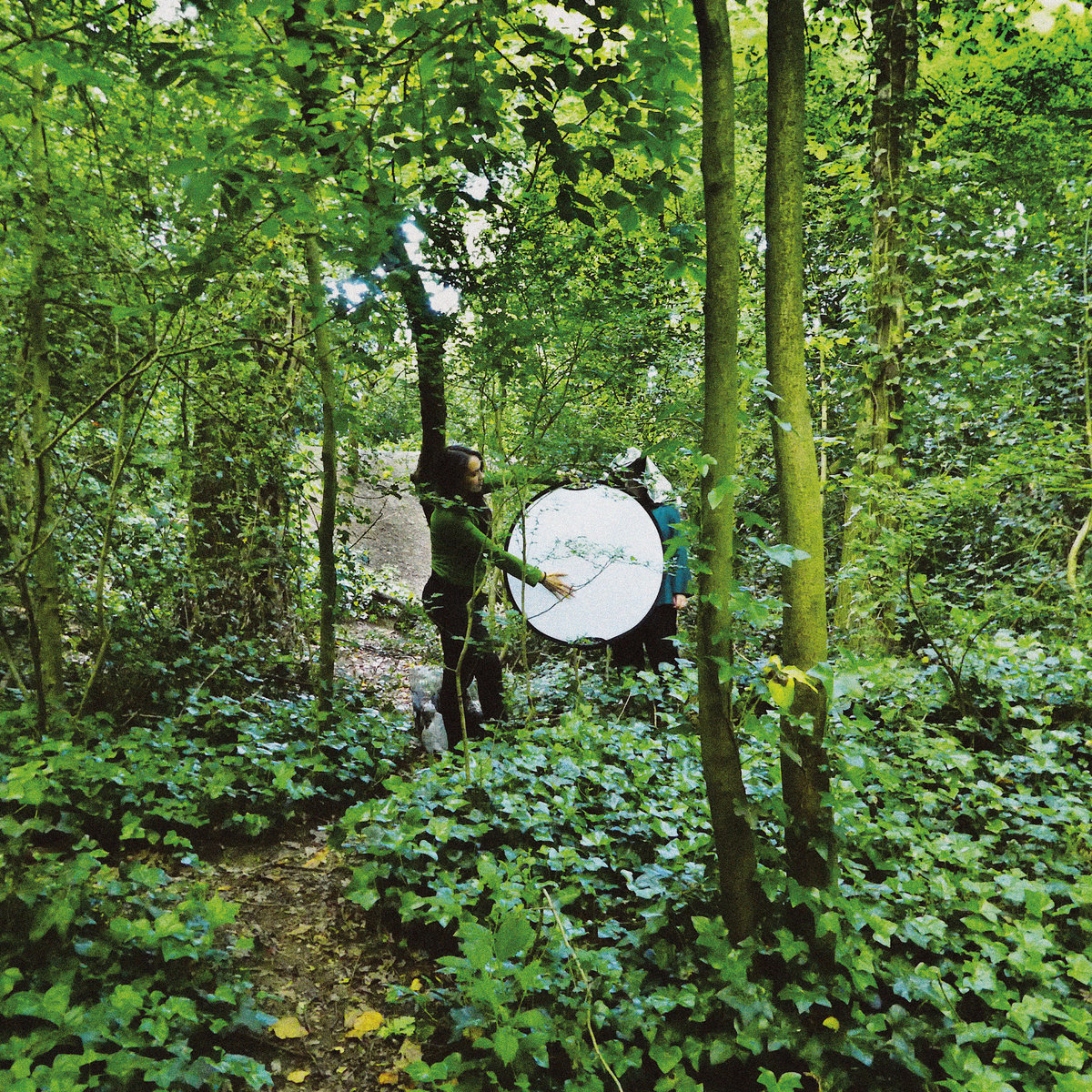
Valentina Magaletti & Laila Sakini – Cupo
[Self-released]
When percussionist and producer (not to mention Vanishing Twin member, among many other groups) Valentina Magaletti linked up with the ever-mysterious Laila Sakini for an album of exploratory, improvisational music, perhaps few imagined it’d stand as one of 2023’s most intriguing, rewarding Experimental albums. Yet, Cupo is exactly that. Drifting between Free folk, Electroacoustic music, and even verging into (very) abstract Jazz, it expects a lot of its listener – particularly patience – but returns that investment tenfold.
Often glacial, always restrained, it carefully, yet freely, unfurls before your eyes. At times, listening can feel like being lost in an endless desert, at others, it feels practically otherworldly, as if you’re strapped into some wayward vessel, adrift in space, floating ever further into unknown regions as reality decays around you. It’s enigmatic, and can even feel subtly hostile at times, seeming to prickle at the thought of being pieced apart, rejecting that notion altogether by remaining intoxicatingly distant and inscrutable. An album that is sure to grow on you with time spent, it leaves you delightfully stranded within your own psyche, offering little in the way of mercy, but plenty in the way of weary reflection. It may not be a friend, but it’s certainly an always intriguing companion, preferring to leave you in a field of gloomy, fading fires, rather than invite you inside. Being marooned has rarely sounded so good. – Chase McMullen
Yaeji – With a Hammer
[XL]
With a Hammer is the sound of frustration and anger as lensed through bouts of electronic experimentation, moments trapped in time and held for further study and deconstruction. Yaeji uses both English and Korean dialects to document pandemic helplessness and fury, while also finding ways to broker different sounds for words in service to this hulking emotional behemoth of an album. Sounding almost celebratory at times, the songs are packed with acerbic wordplay and a musical inventiveness that allows each track to evolve under its own direction, free from outside influence or timidity. Whether unravelling carefree melodies on “Ready or Not” or joining with Loraine James for some wired deconstruction on “1 Thing to Smash”, Yaeji seeks to realize this series of synthetic fever dreams as a way of addressing experiences that threaten to overwhelm the reality around her.
Rarely has an album so expertly balanced the density of its internal and often abstract lyrical mechanisms with an unpredictable musicality that challenges listeners to attempt to define the parameters of what they’re hearing. With a Hammer is Yaeji’s way of handling all the concurrent conversations we have with ourselves on a daily basis, with all the insecurity, hesitancy, joy, and heartache wrapped up in this whirling mass of electronics and vocal theatricality. The album offers a glimpse into private monologues and candid realizations laid out alongside buzzing synths, layers of live instrumentation, and a mix of minimal and opulent percussion, resulting in an affecting collection of shifting narratives and emotional entanglements completely free from genre limitations. – Joshua Pickard
Yours are the Only Ears – We Know the Sky
[Lame-O]
Starlit conversations. Words spoken to lightning bugs in the late hours of spring. Wit and encouragement born from years of experience. These things live and offer themselves in the work of New York singer-songwriter Susannah Cutler, a musician who presides over landscapes filled with yawning strings, autumnal acoustic echoes, and voices enjoined in intimate dialogues. Her sophomore album recorded as Yours are the Only Ears, We Know the Sky, is a gently dynamic sea of whispered vulnerabilities, emotional reckoning, and familial closeness – the kind of album that’s held tightly to your heart and isn’t shared with just anyone. The plucks and strums and strings on opener “Dreamer” recall the softly rendered jangle pop of bands like Orange Juice and The Go-Betweens, while the title track dips into folkier atmospheres, less concerned with momentum than it is with intimate connection and empathy.
The pedal steel on “Bad Habit” and rat-a-tat percussion on “Stained” offer additional layers to Cutler’s musical tenderness. Even when her voice is calm and the music is perched lightly in our senses, there is still a weight to her words, a feeling of emotional gravity as she confides in us. She documents the struggle to pull ourselves out of trauma, to grow beyond the hurt we’ve experienced and not allow it to determine what the future holds. The reality of this kind of healing is complicated. And while the vagaries of existence and identity long held her back from fully exploring the strength she possessed, her work here allows her to shed light on how we bend our bodies and personalities to fit in, to appease the people around us — and through We Know the Sky, she is finally able to navigate around the detritus of past pain to focus on the possibilities of her own potential. – Joshua Pickard
Zulu – A New Tomorrow
[Flatspot]
Los Angeles band Zulu deal in tonal chaos. Their debut album, A New Tomorrow, is a mix of classic soul, powerviolence, punk, and jazz – it’s a musical chimera, a vicious and occasionally beautiful thing that doesn’t hesitate to hand your ass to you if you underestimate its power or relevancy. Acidic and prone to shift through parallel musical realities, it leaves a wake of devastation and psychological reckoning in its wake. From the opening classically minded procession of “Africa” to the hardcore thrash of “For Sista Humphrey”, the band delivers manifestos of catastrophic density. “Shine Eternally” evokes 70s soft rock tropes and reminds me of Ween in their less manic moments while “Lyfe Az a Shorty Shun B So Ruff” zigzags between punk ferocity and Tamla grooves. But there’s something larger at work here than just the deconstruction of the band’s legion of influences.
The album is informed by pain but isn’t defined by it – the band doesn’t wallow in misery. If anything, A New Tomorrow uses its arena-sized amplitude in celebration of all the things that Black people have accomplished despite the world undermining their efforts. It’s a call to arms, a blistering amalgamation of histories, musical and emotional and spiritual, which speak to change and how we can tear down ineffective social structures. And in its volatile rhythmic demolition and apocalyptic release, we witness the band’s absolute disregard for genre fidelity and the creation of a sound unshackled by the weight of a century of musical ancestry. A staggering exploration of resilience, generational trauma, and identity, A New Tomorrow hits with a tectonic force, clawing away at the detritus obscuring personal truth and laying bare the necessity of effective rage. – Joshua Pickard
Listen to a Spotify playlist of our favorite tracks from our Overlooked 2023 albums here.


